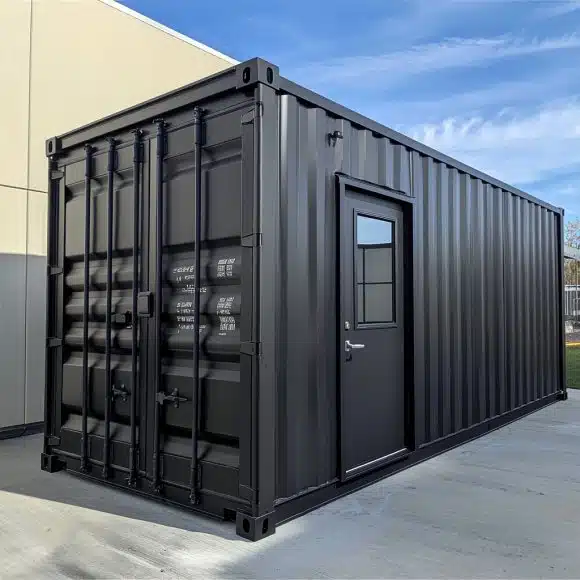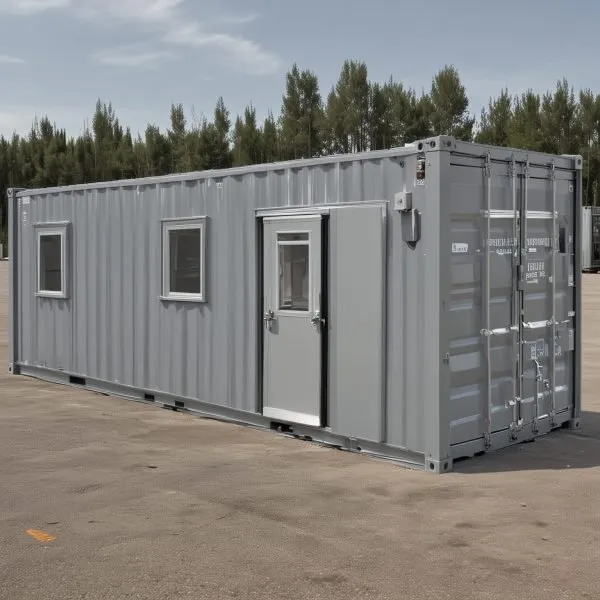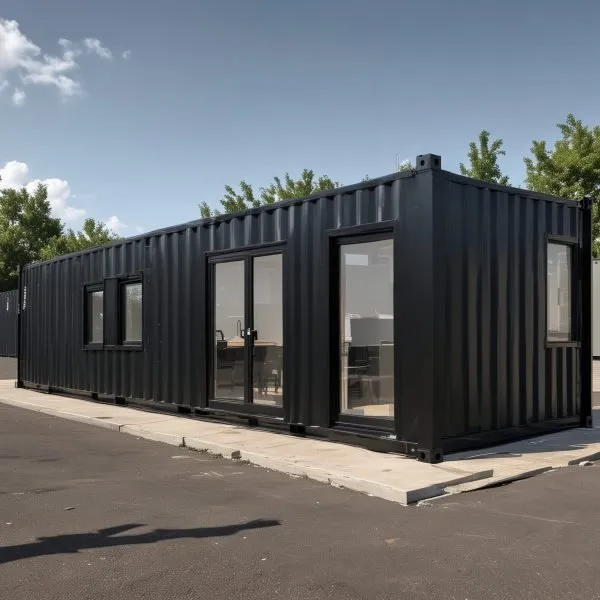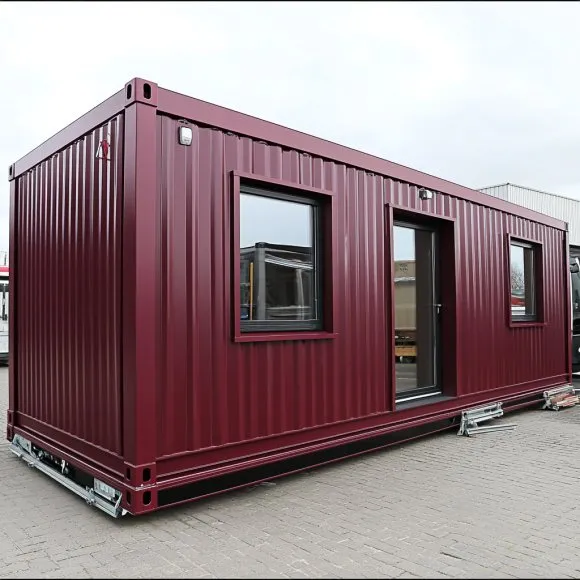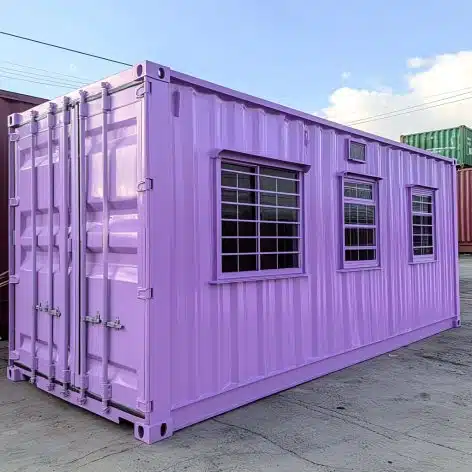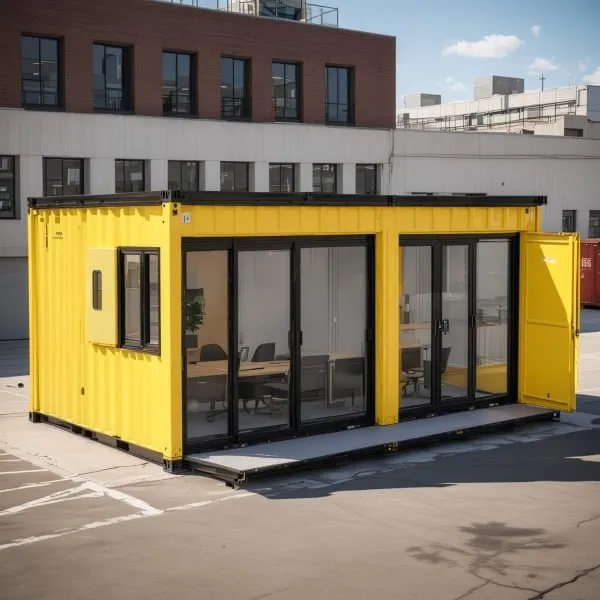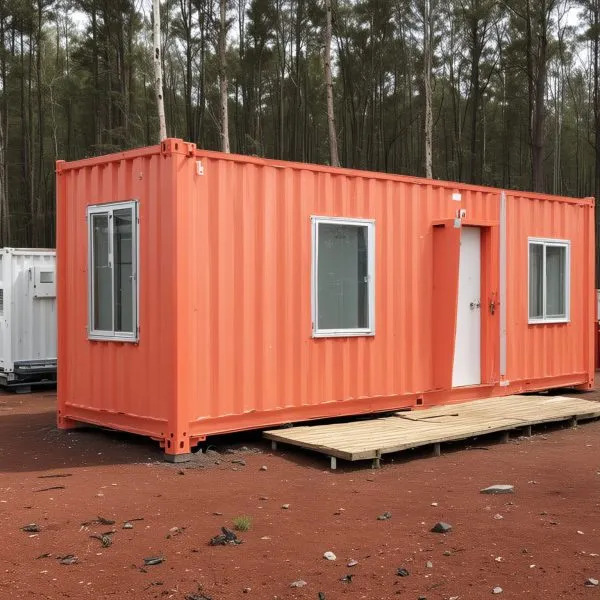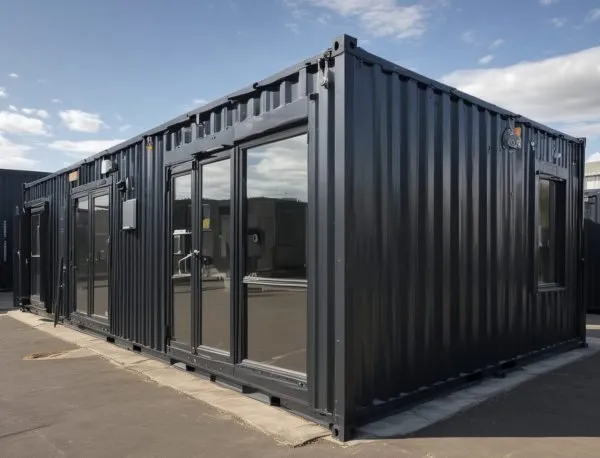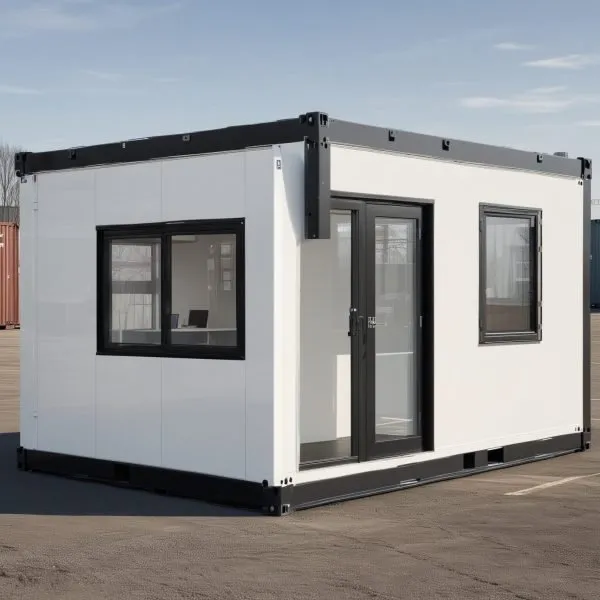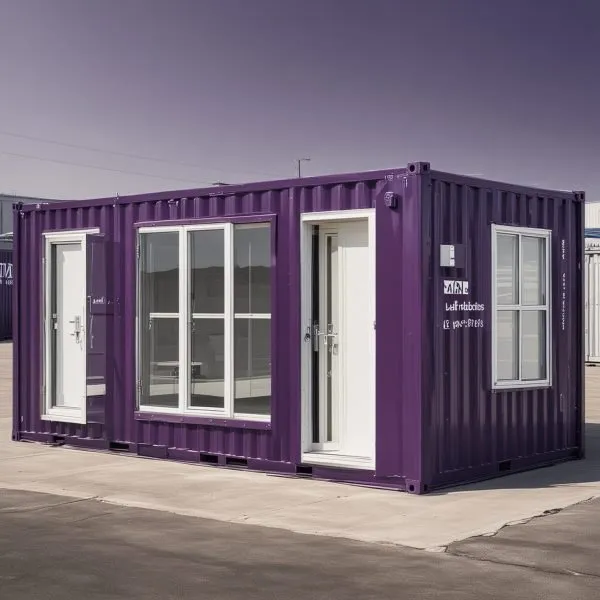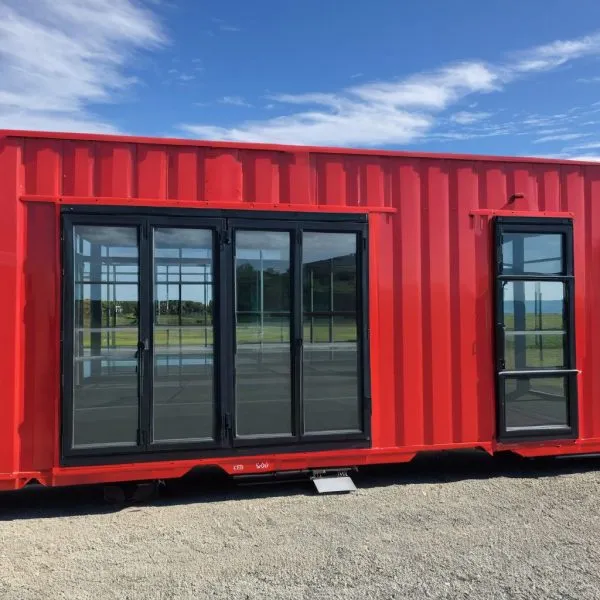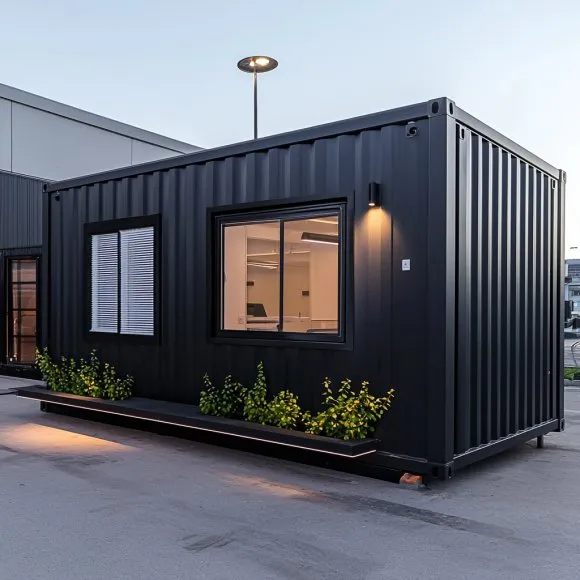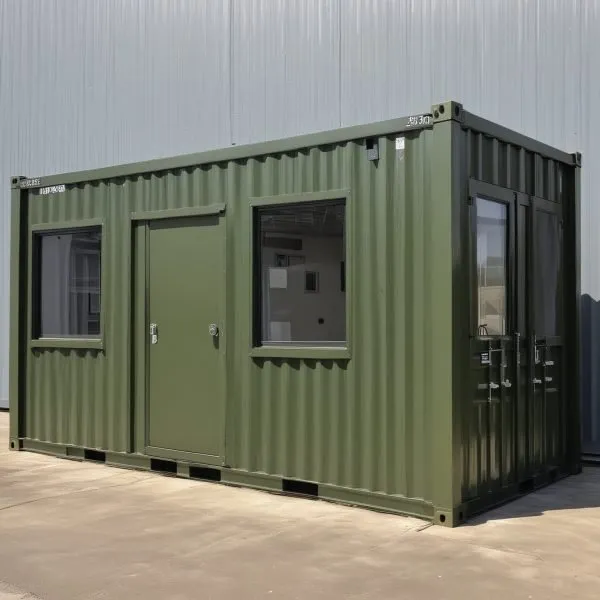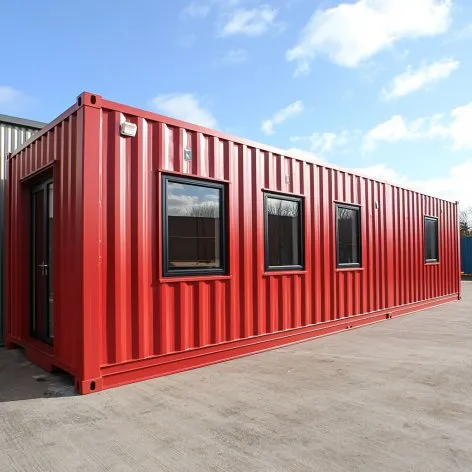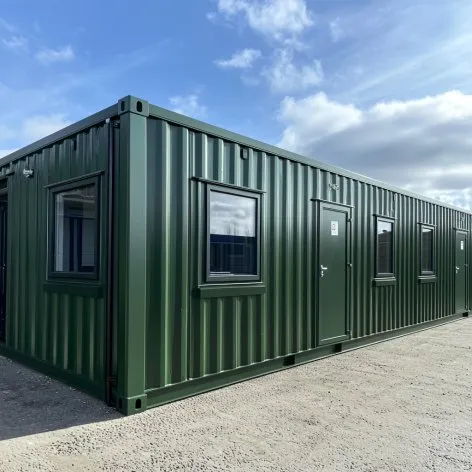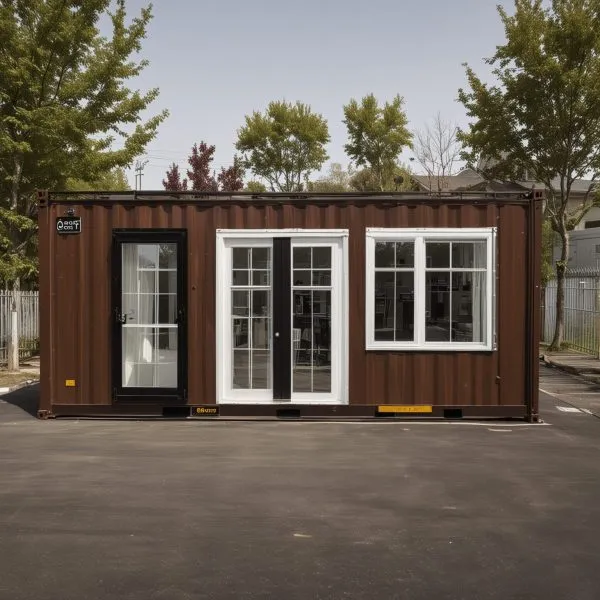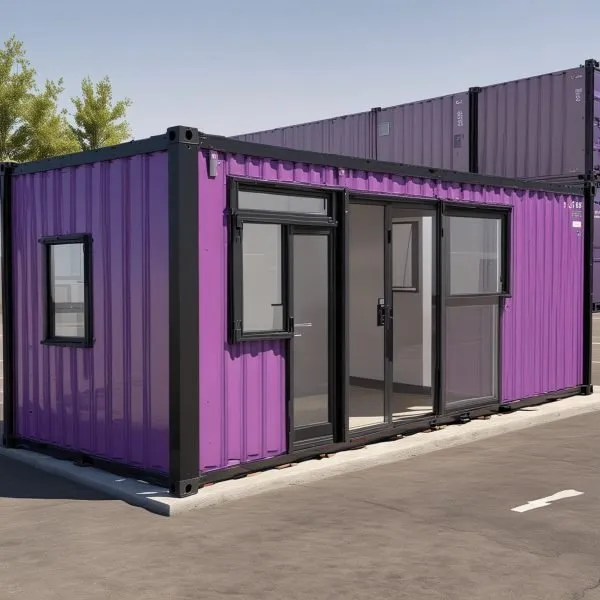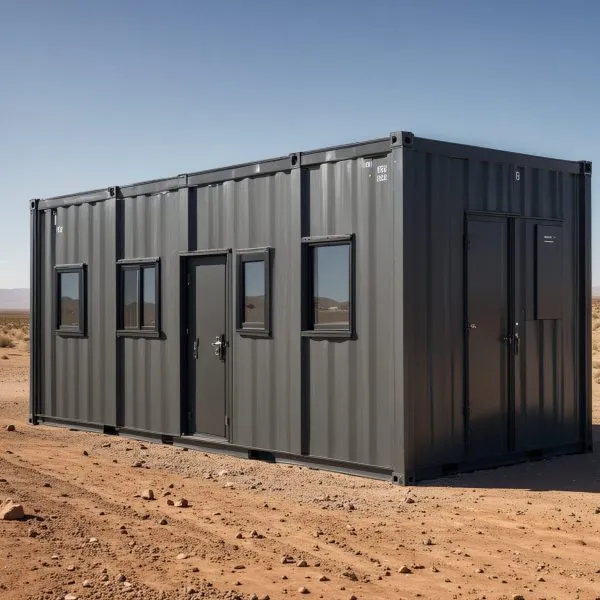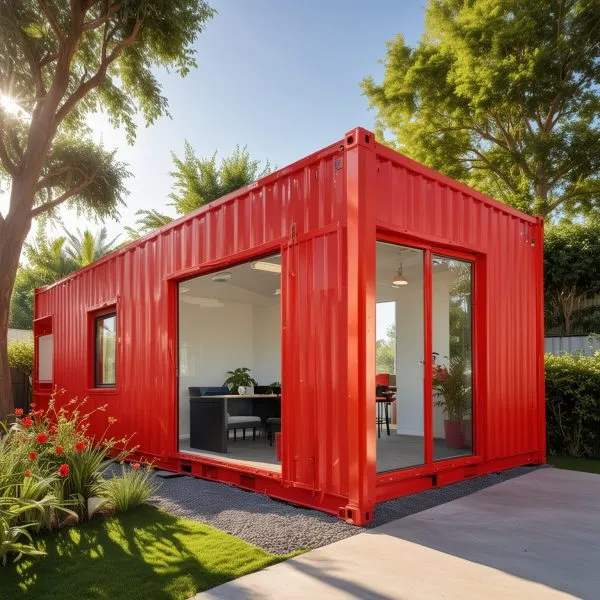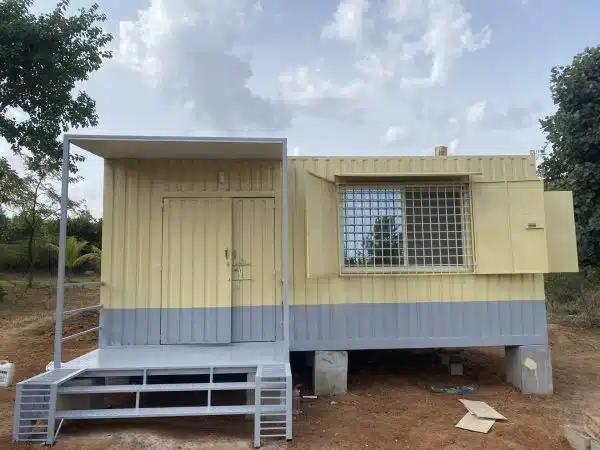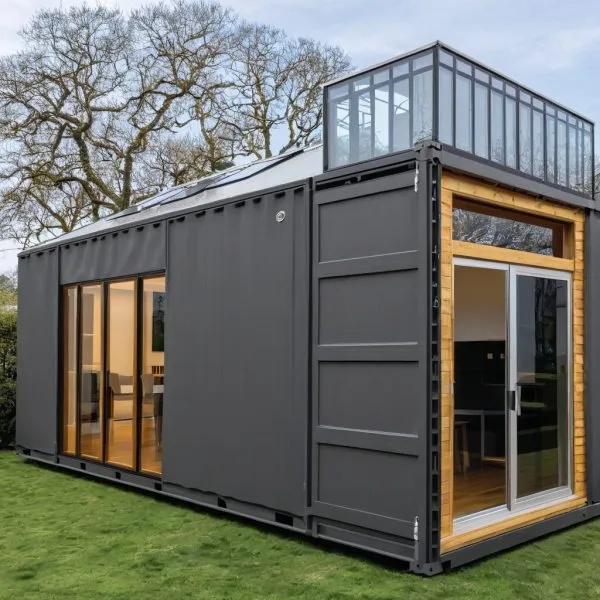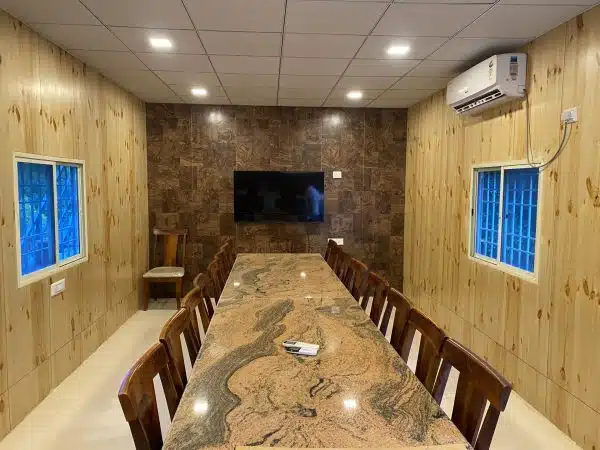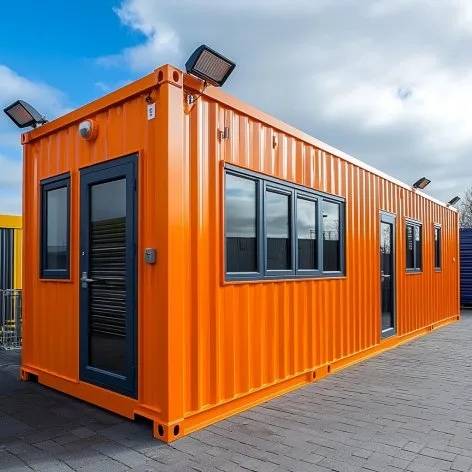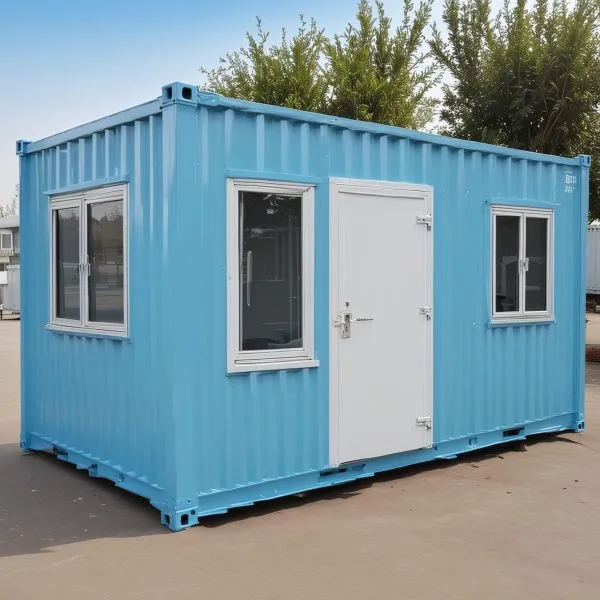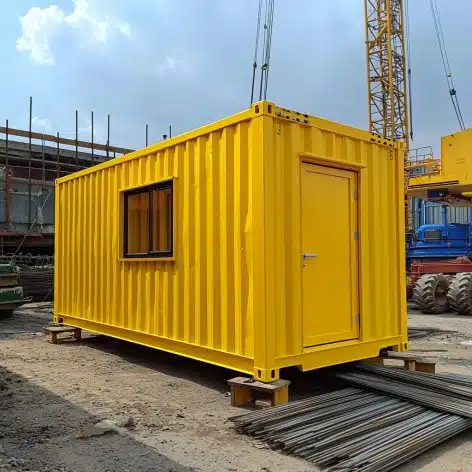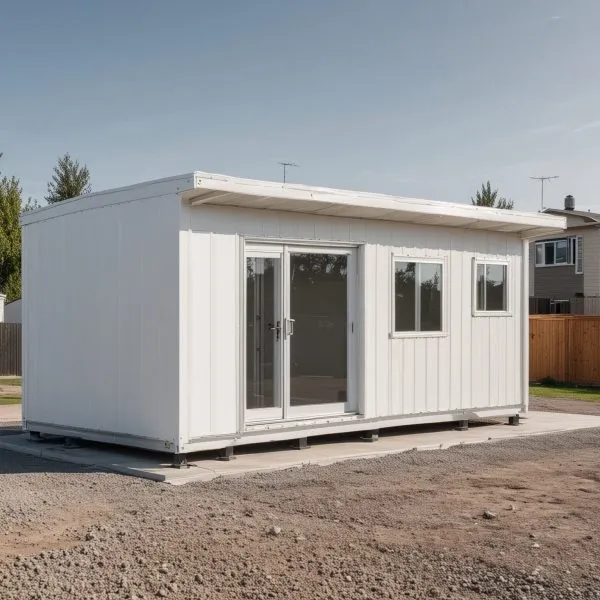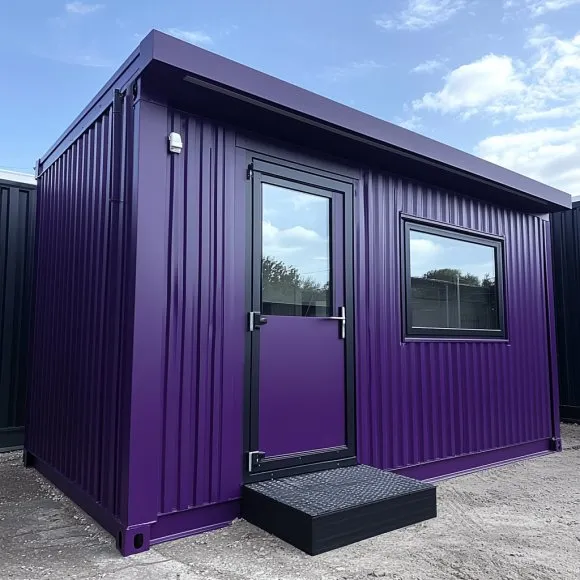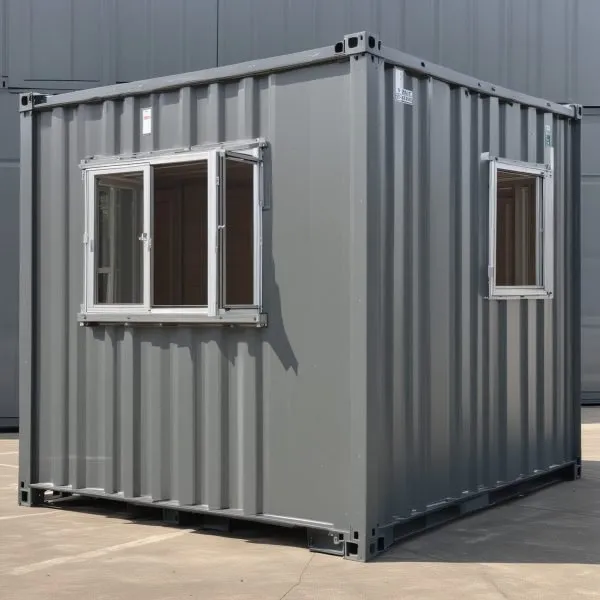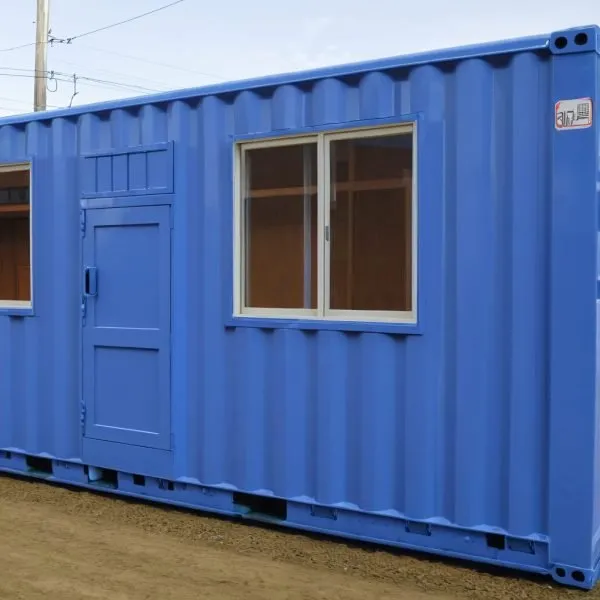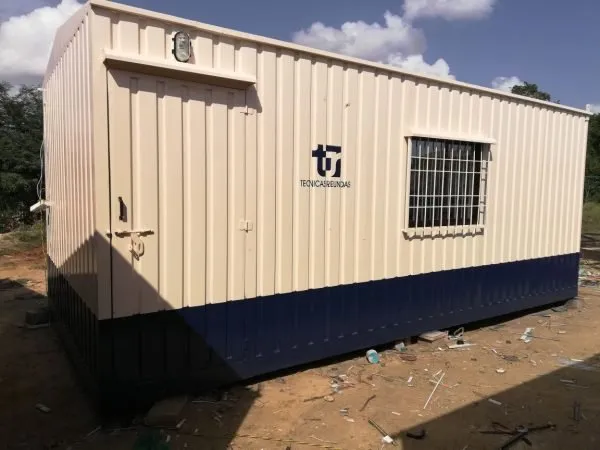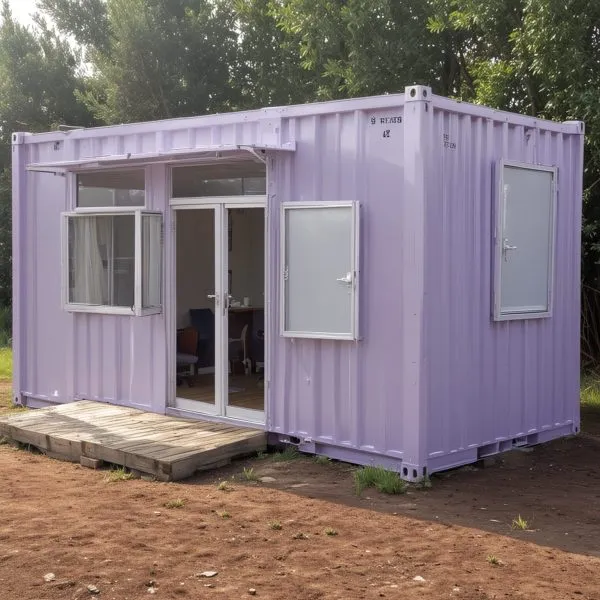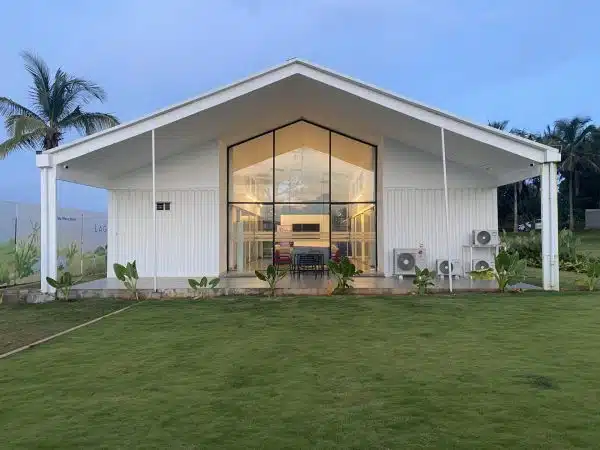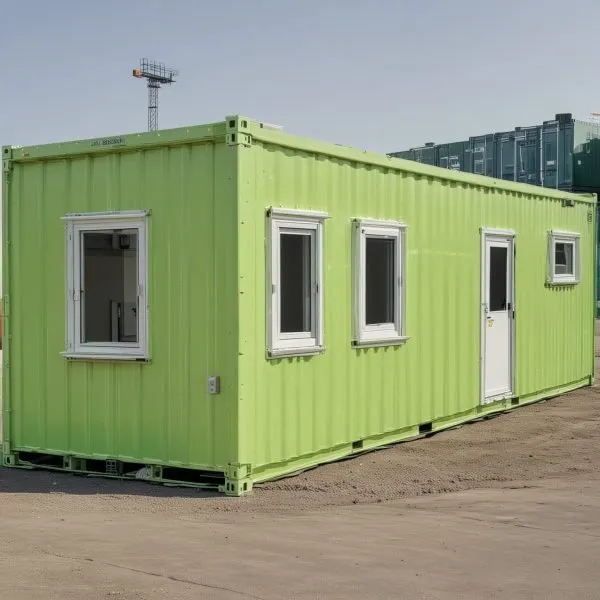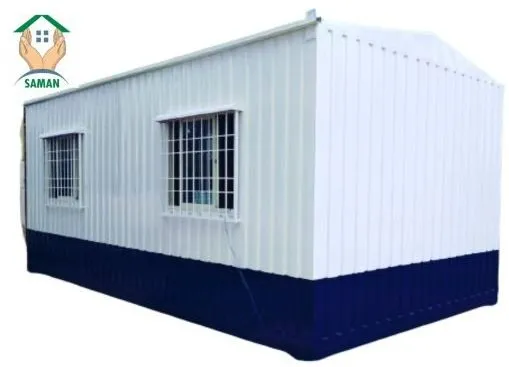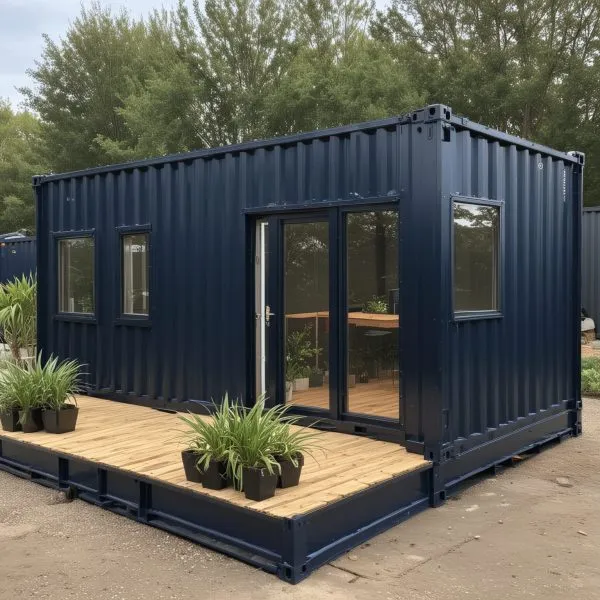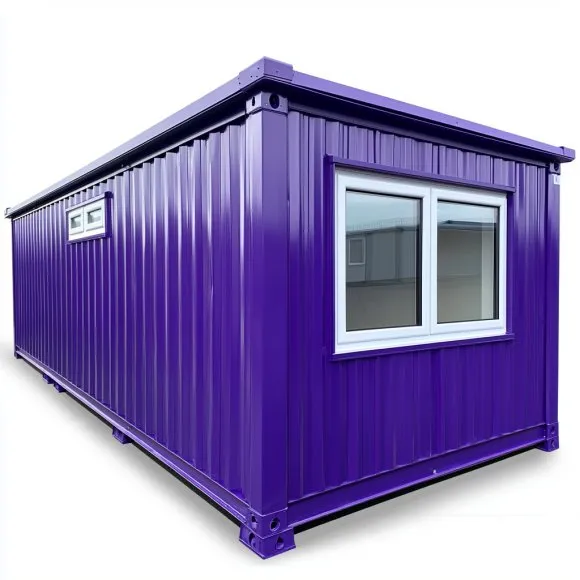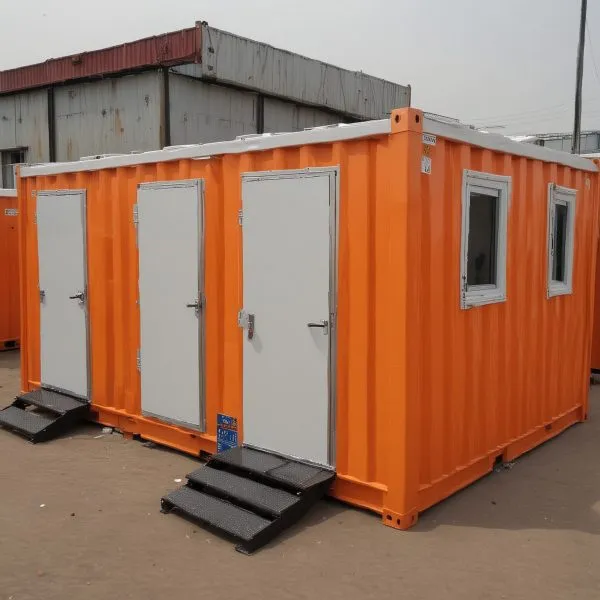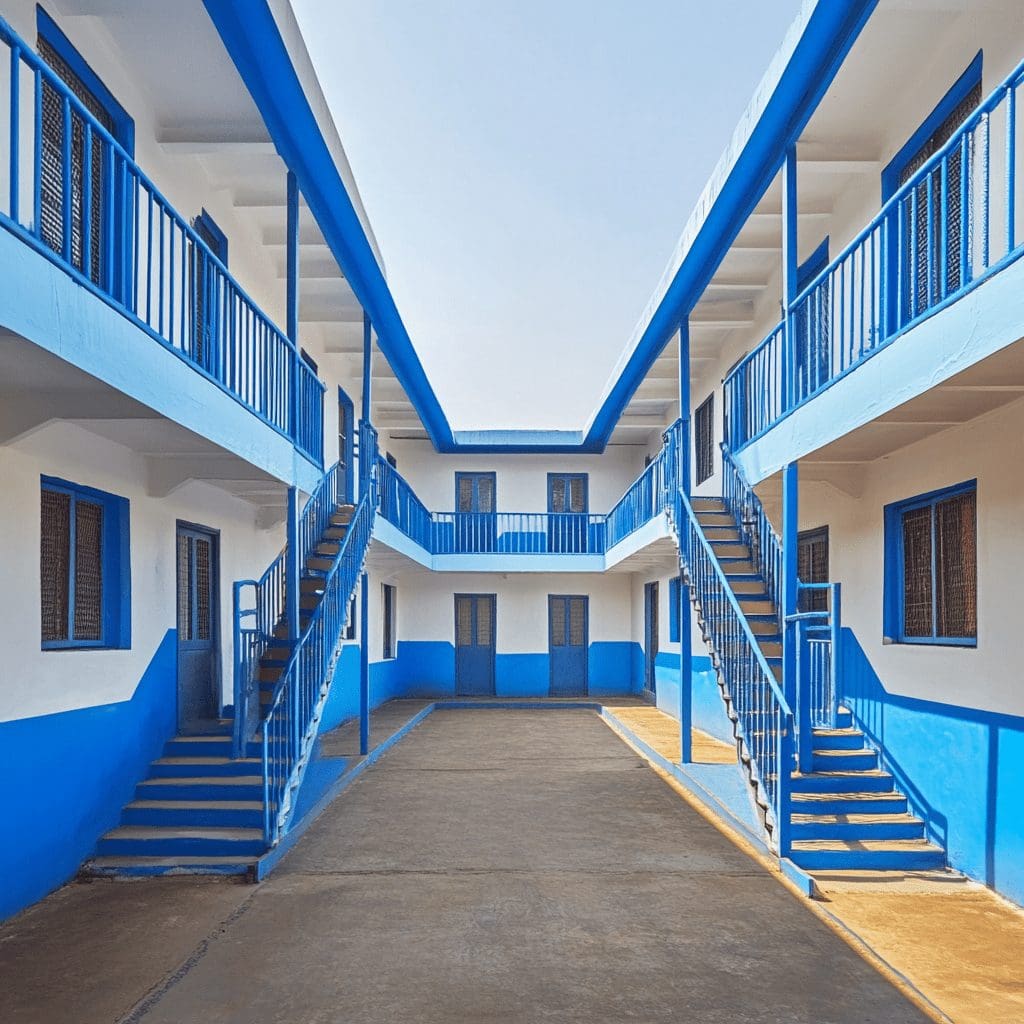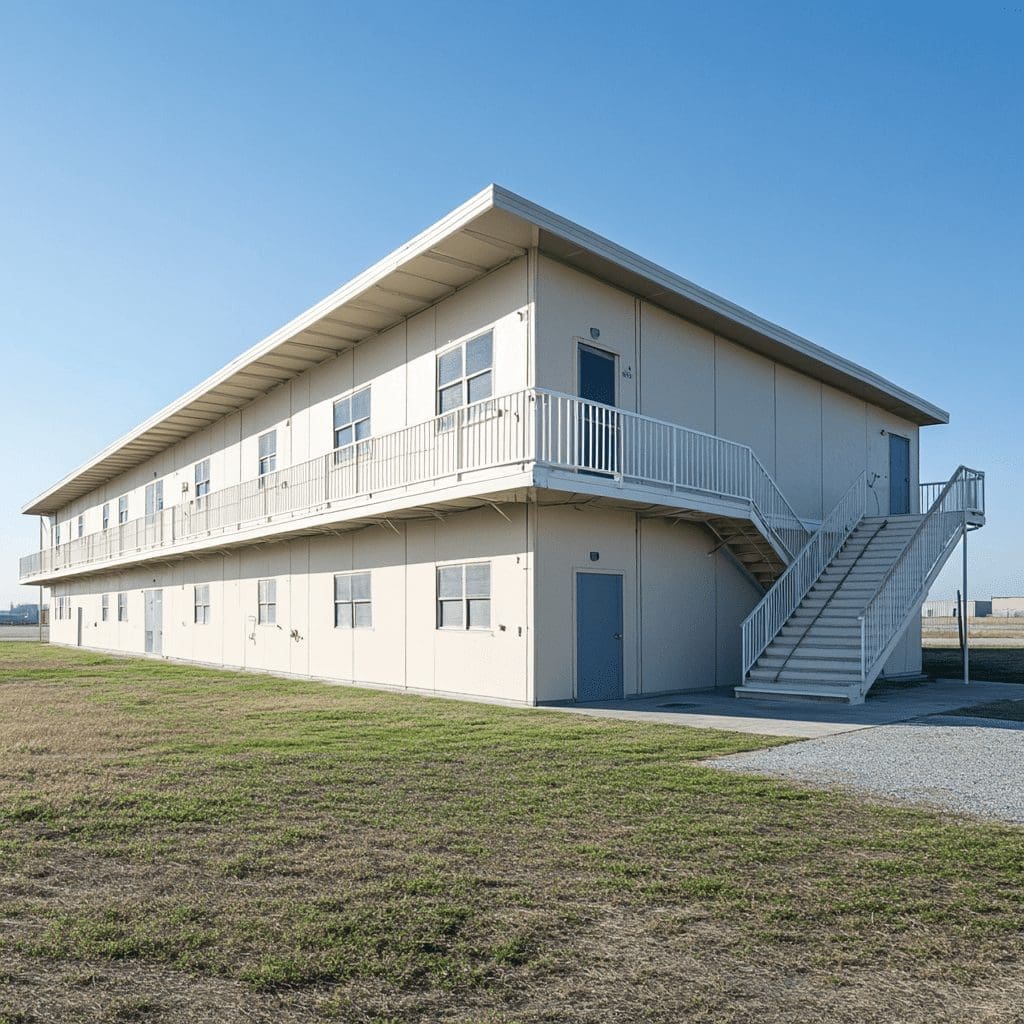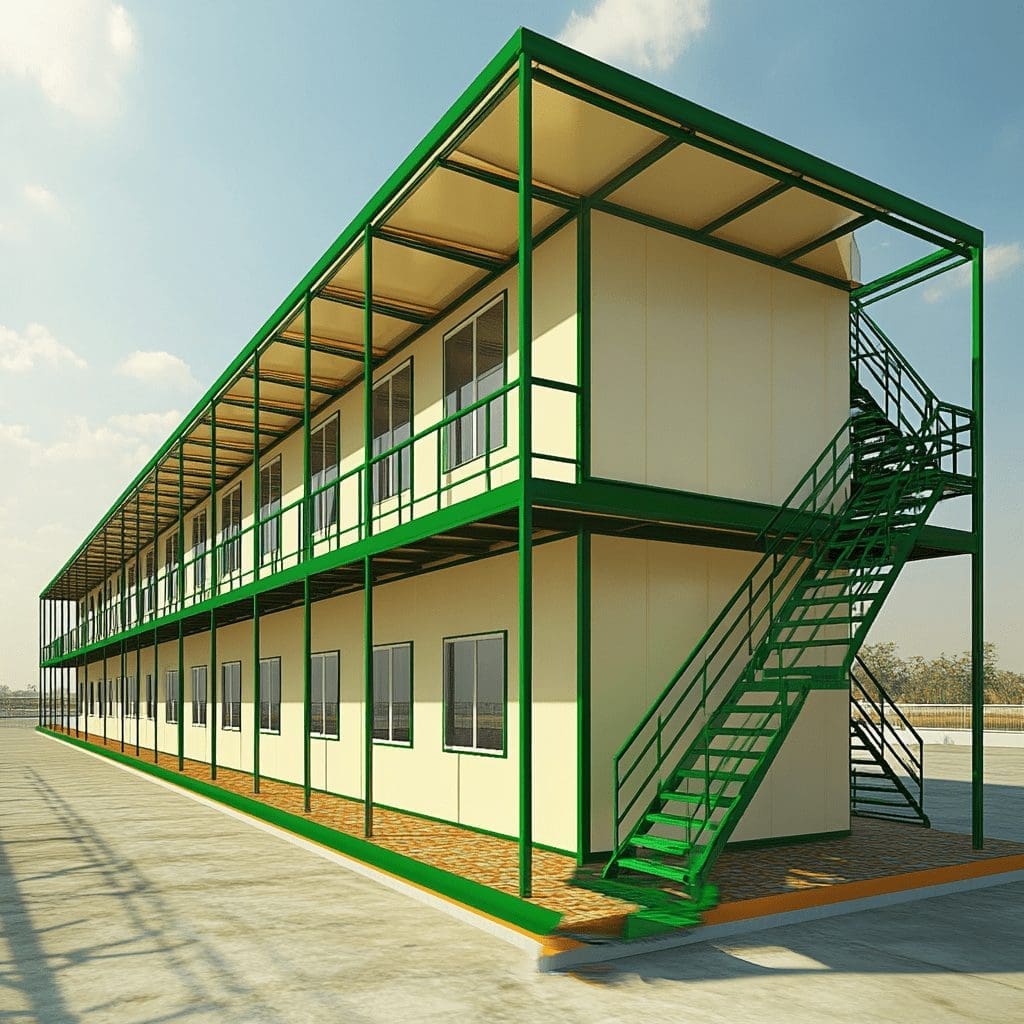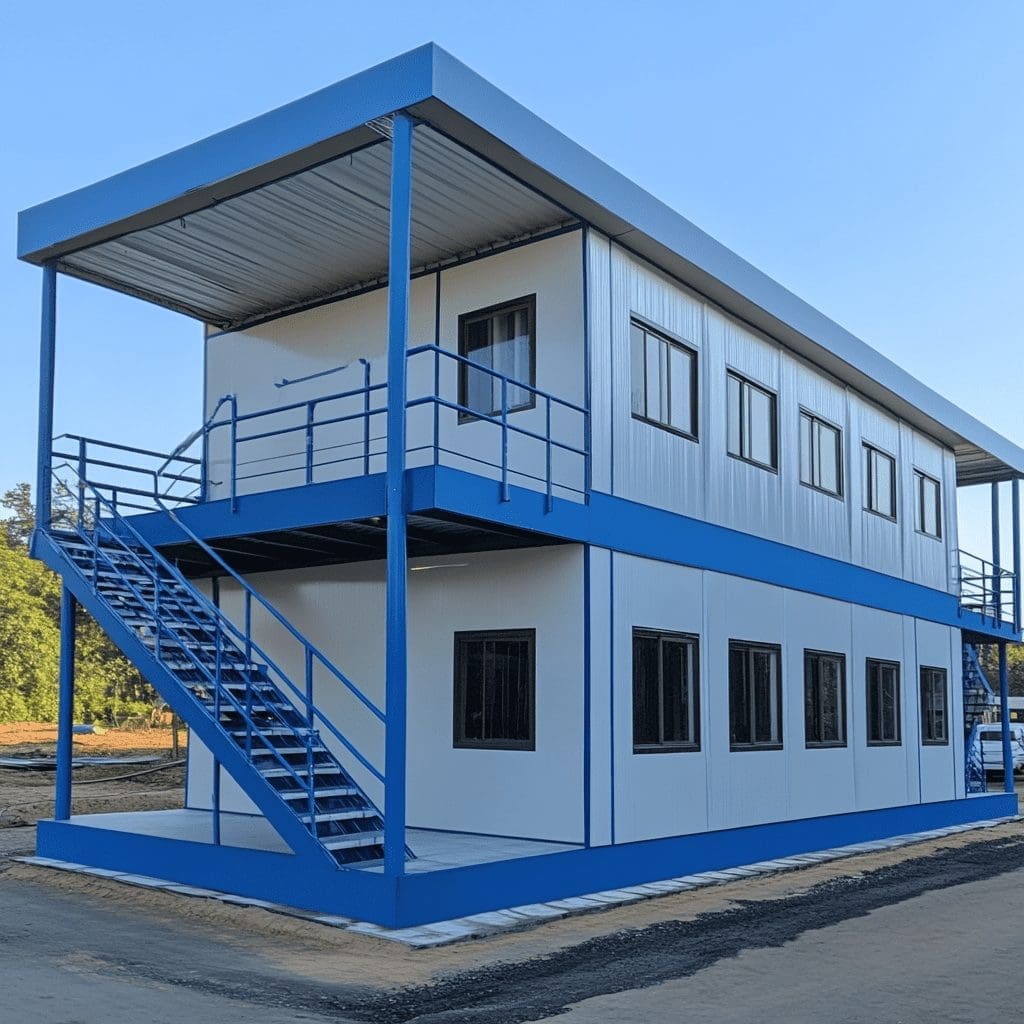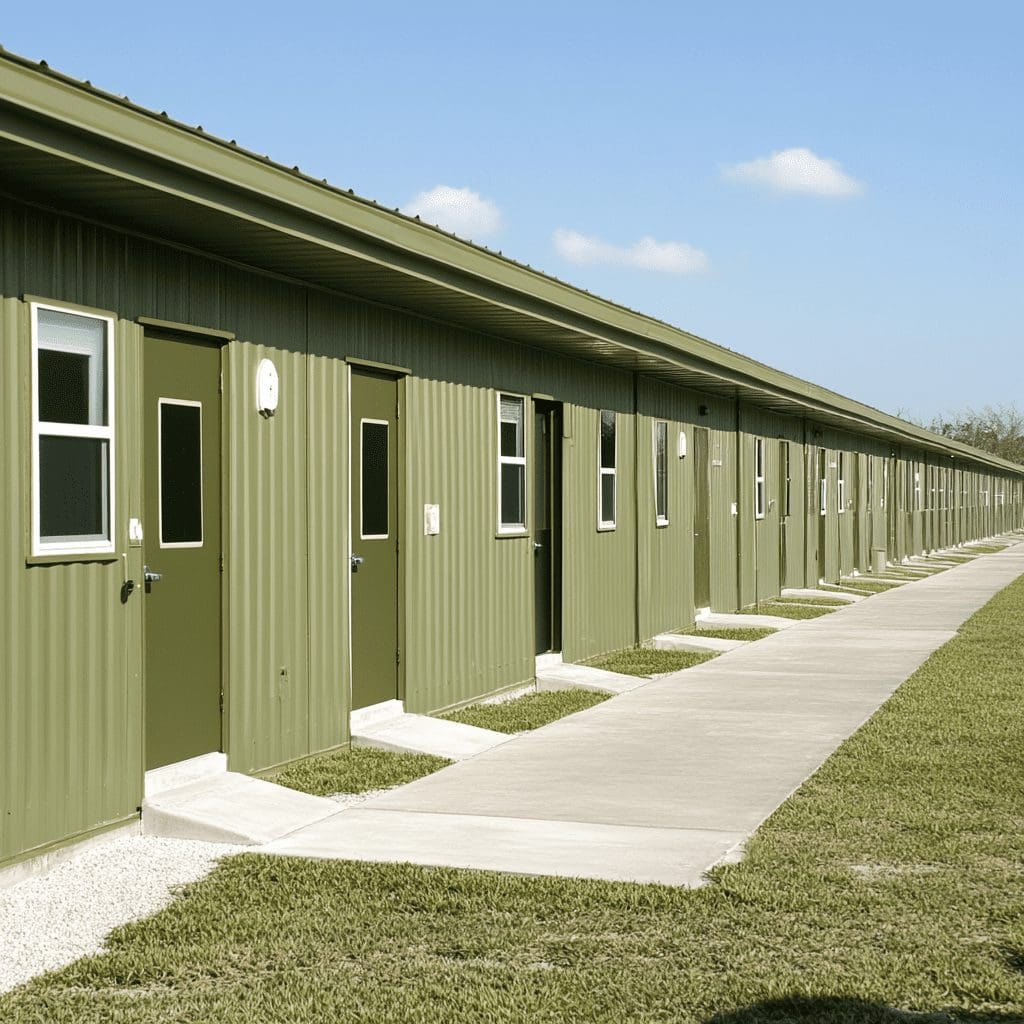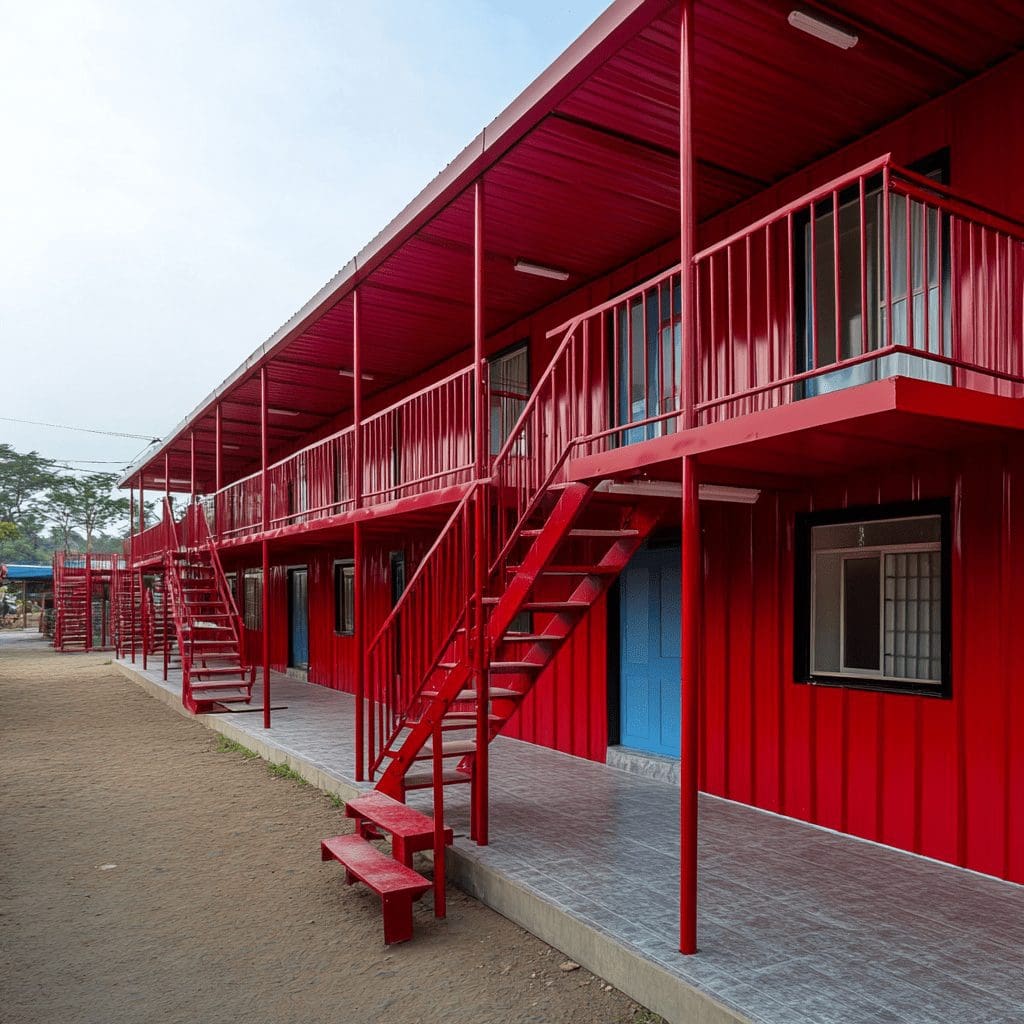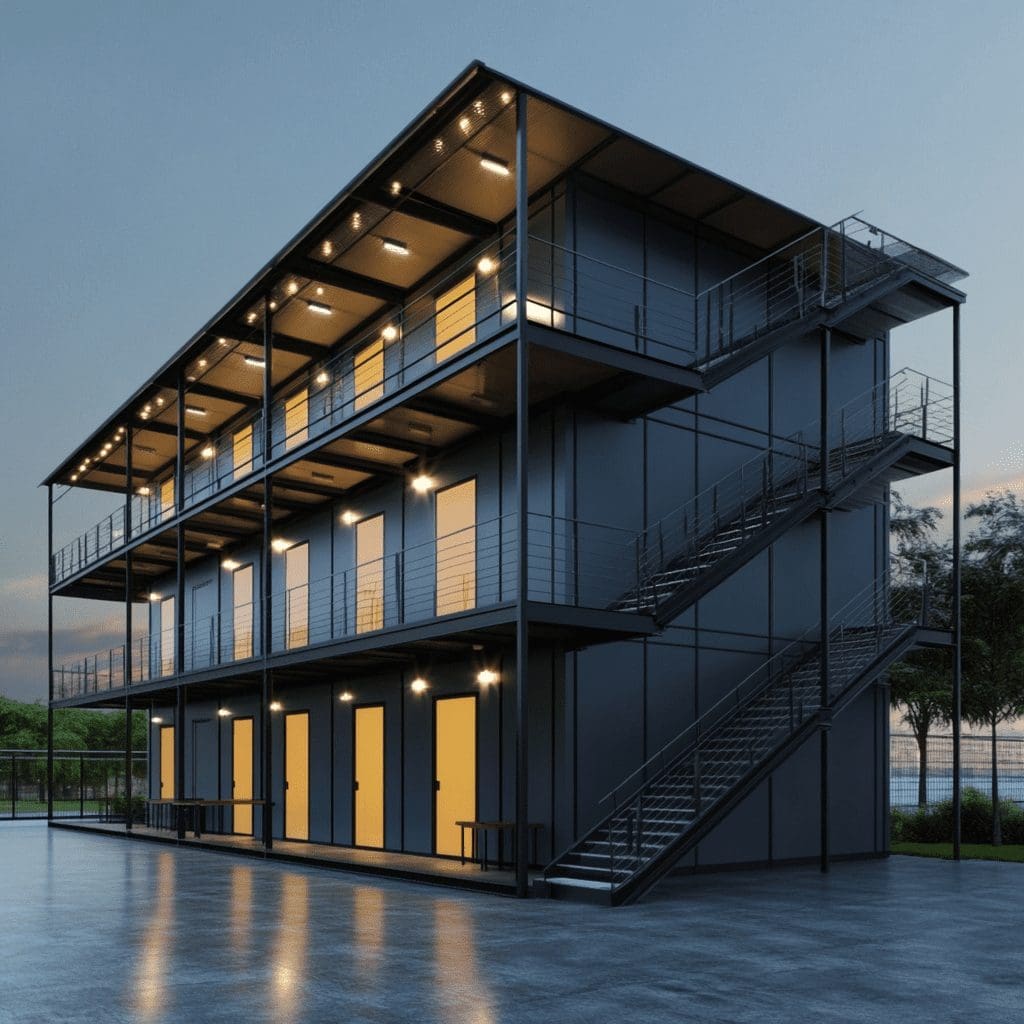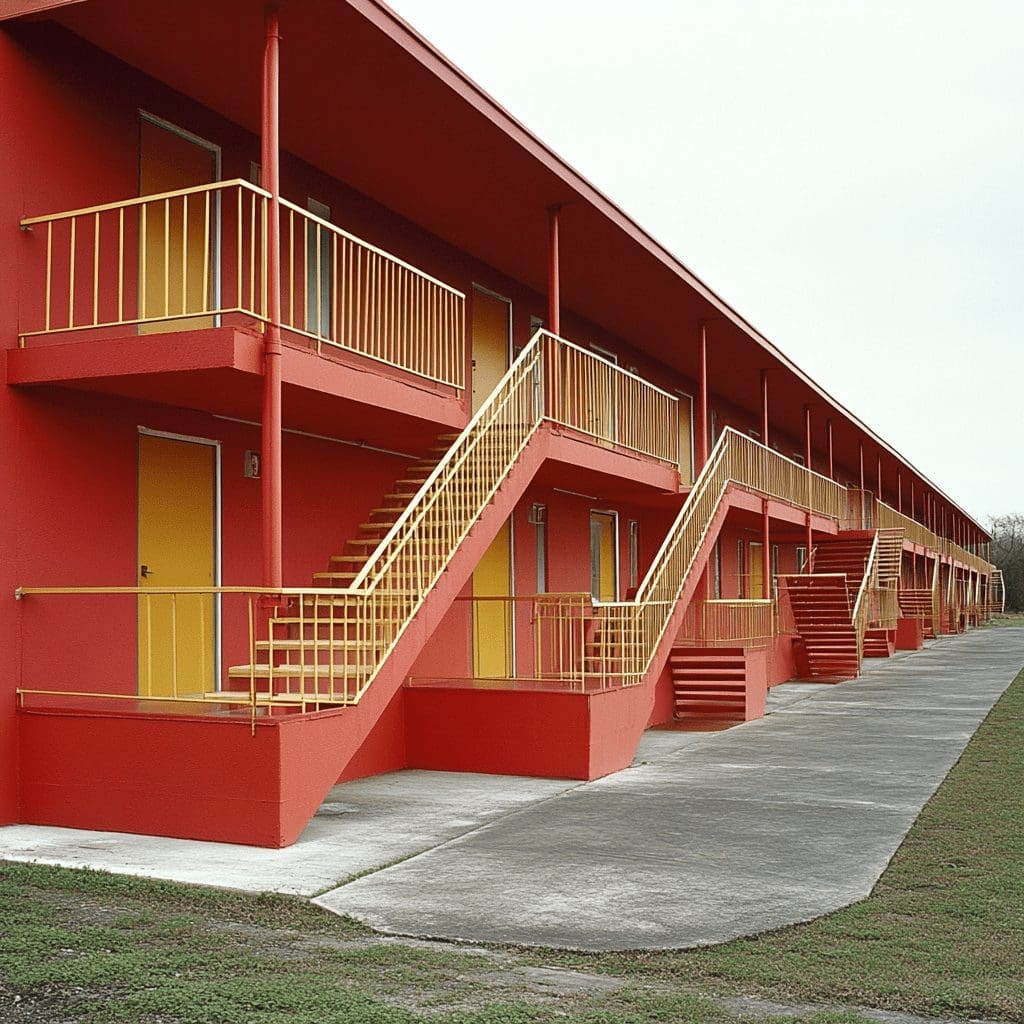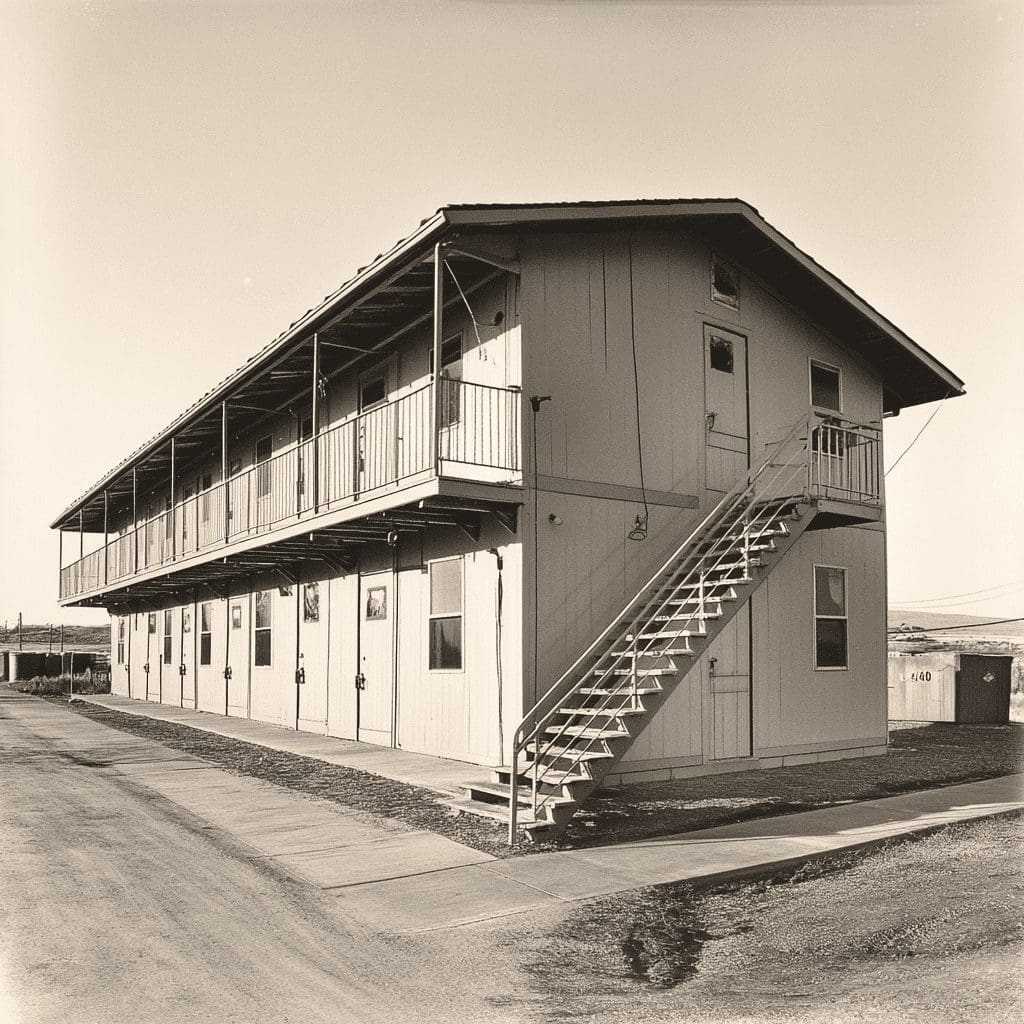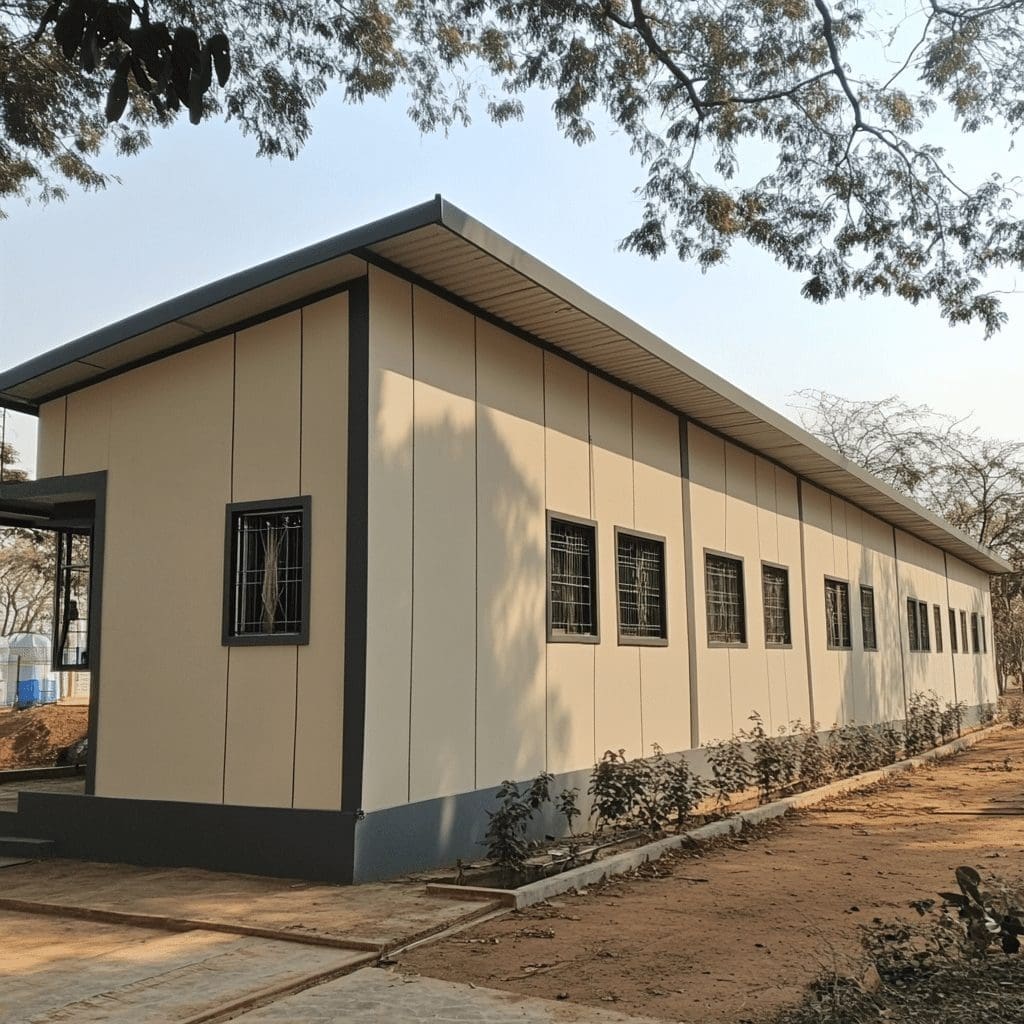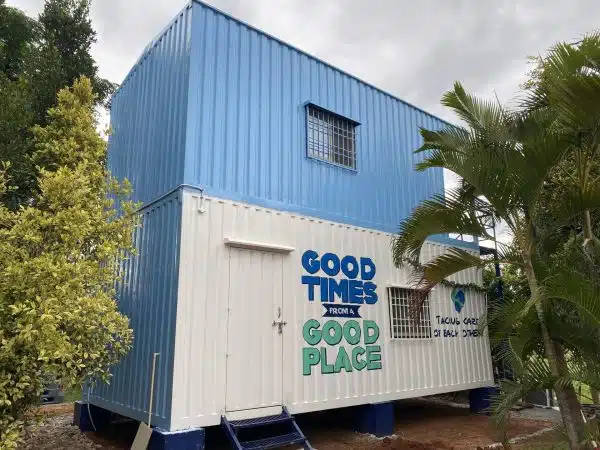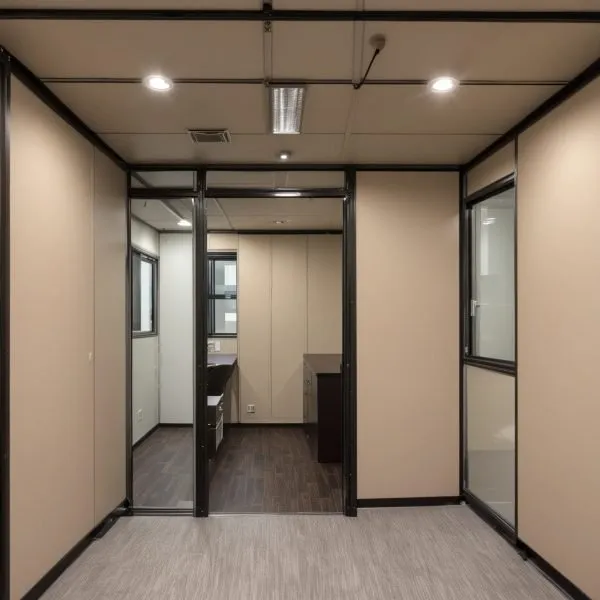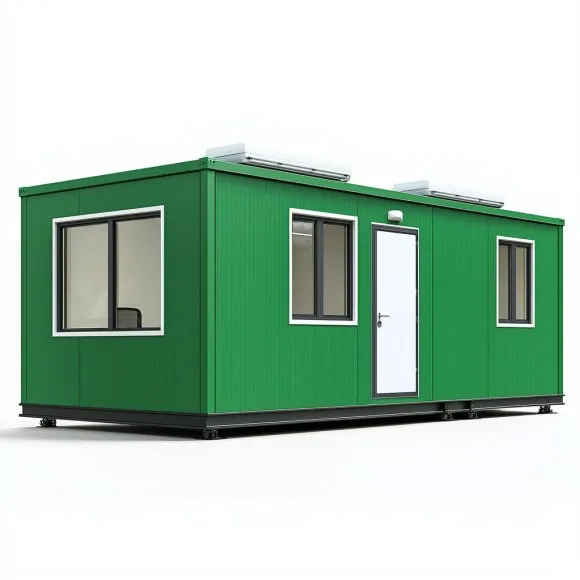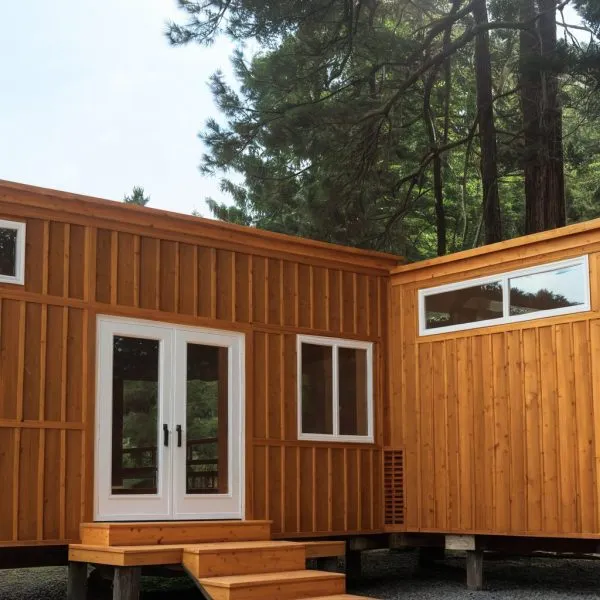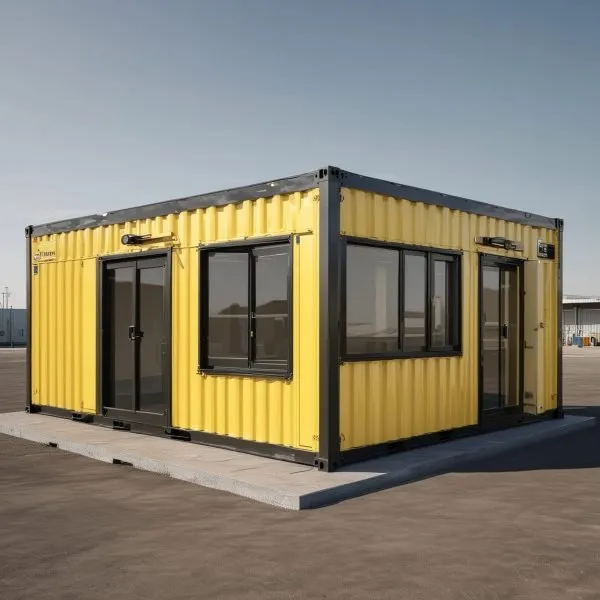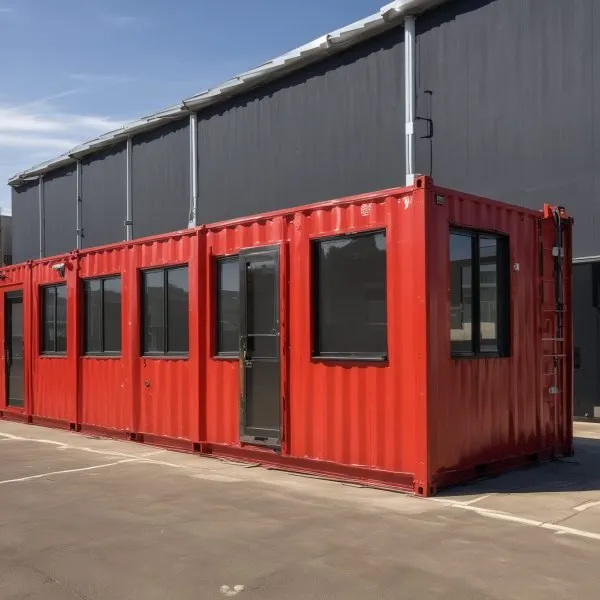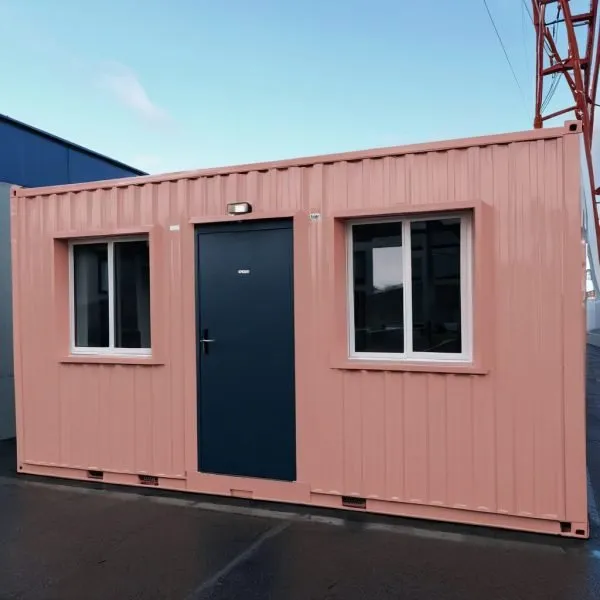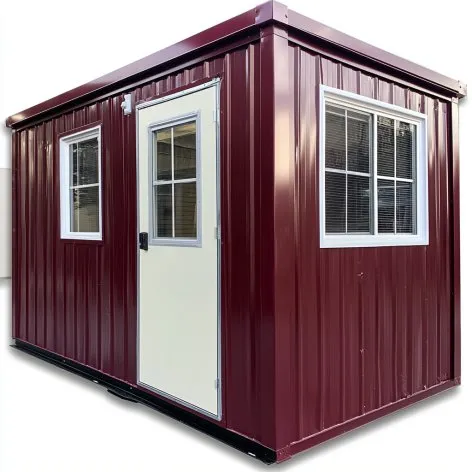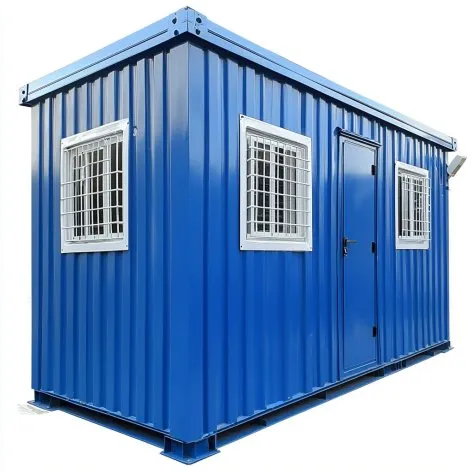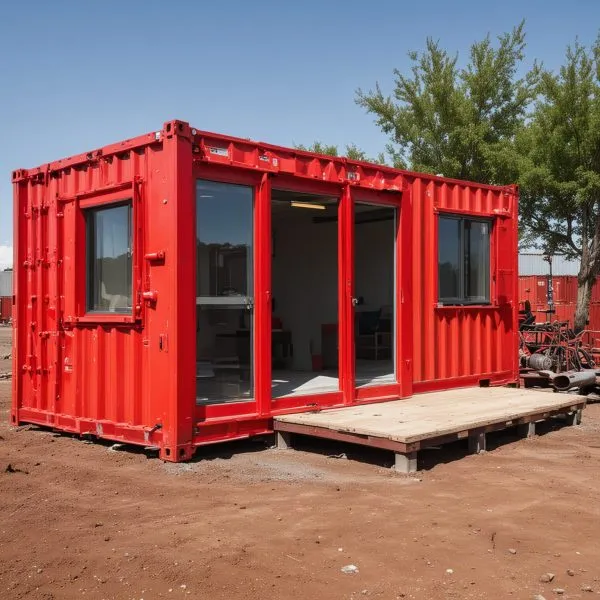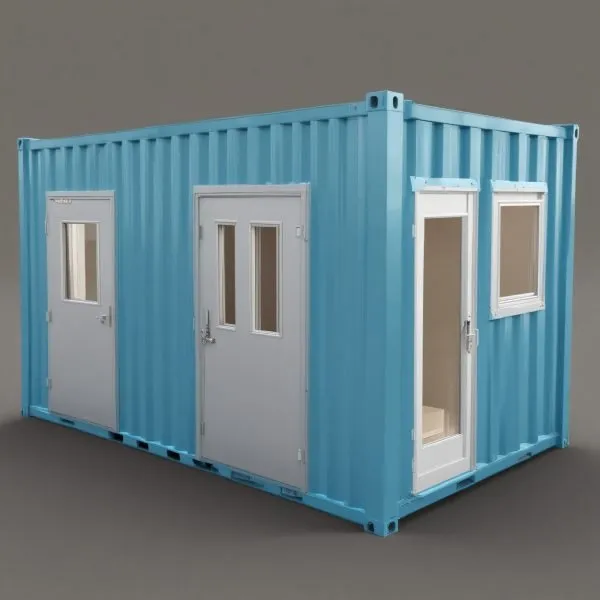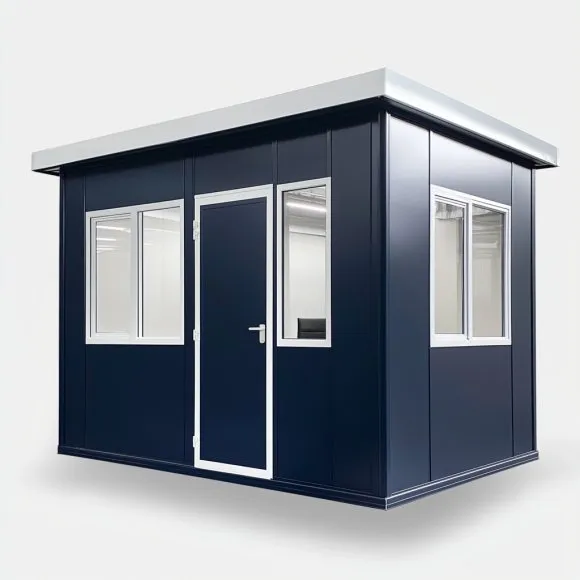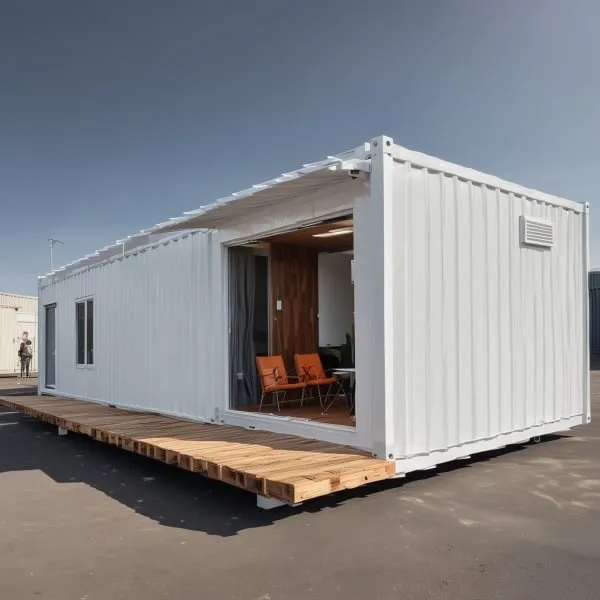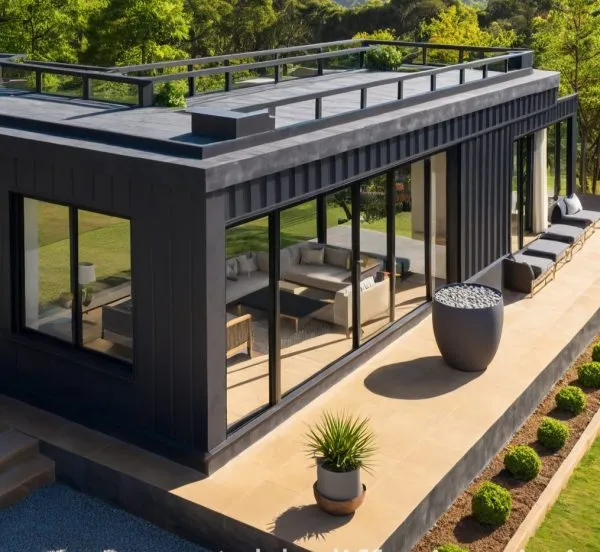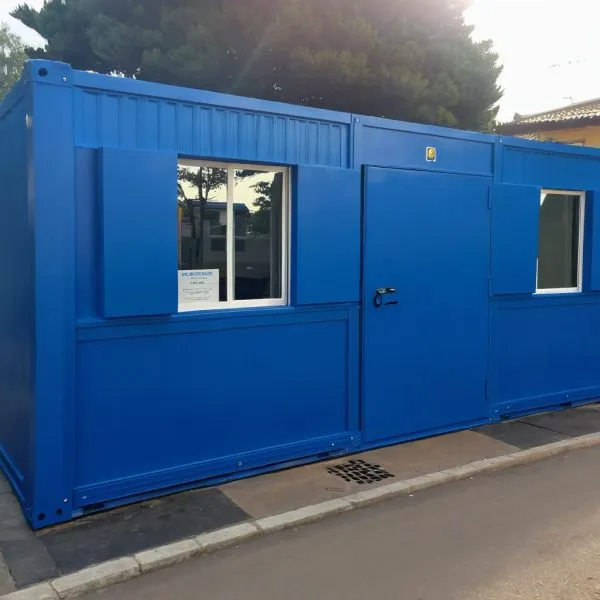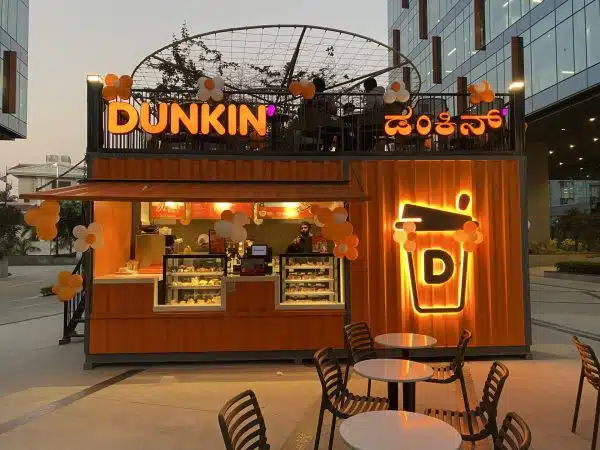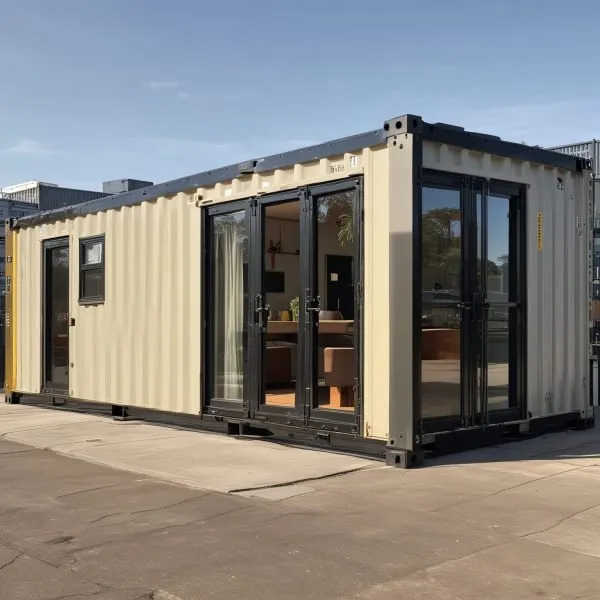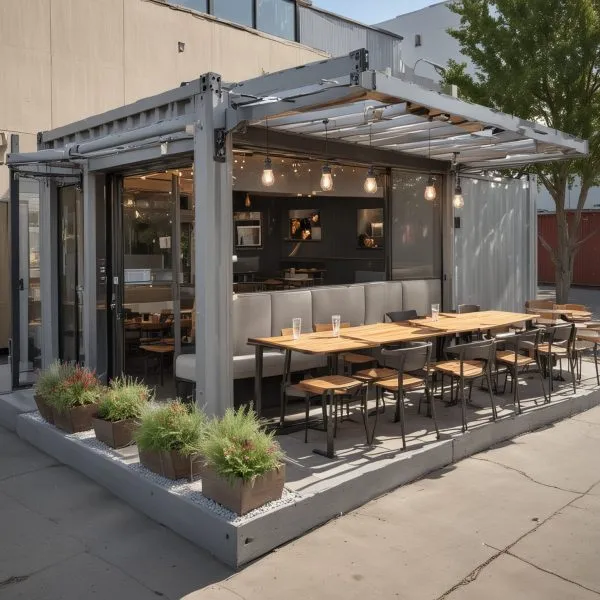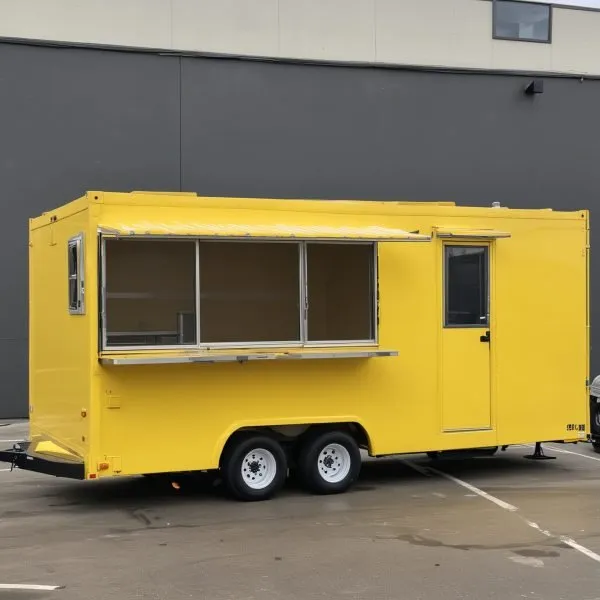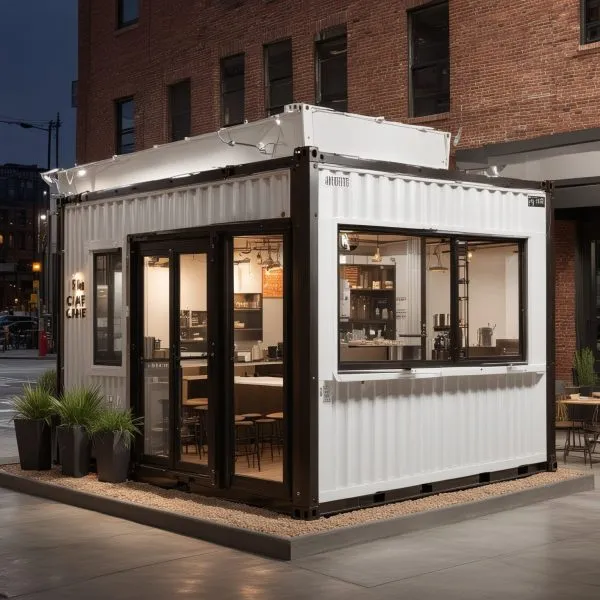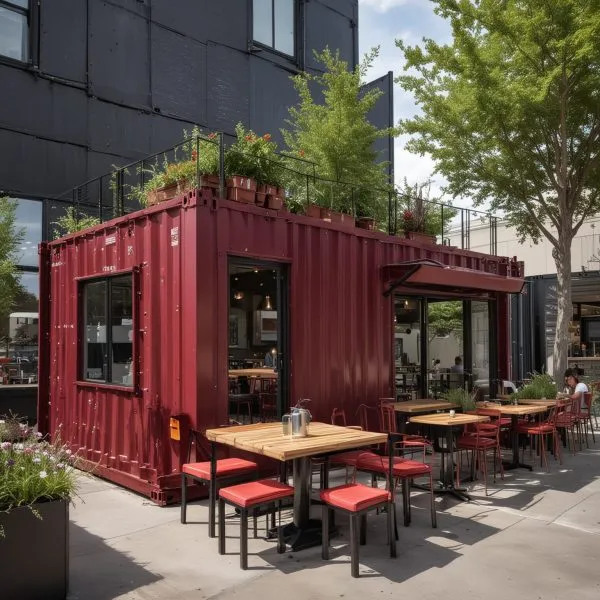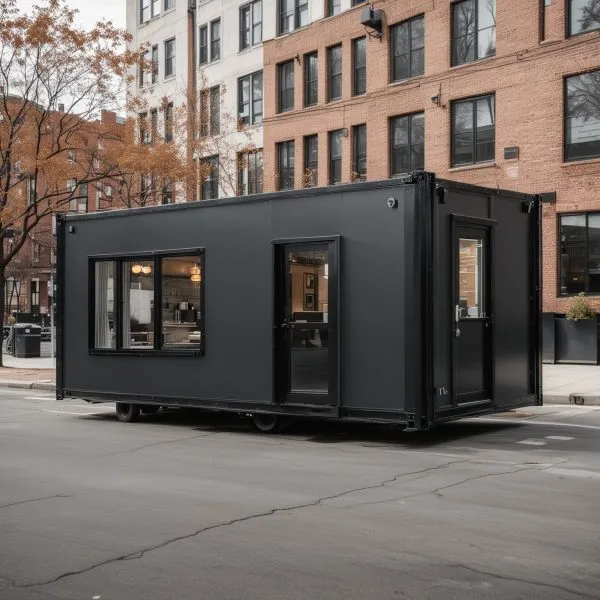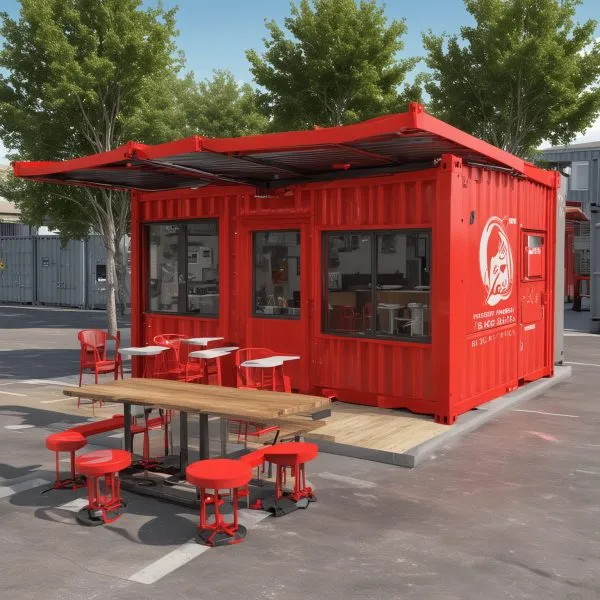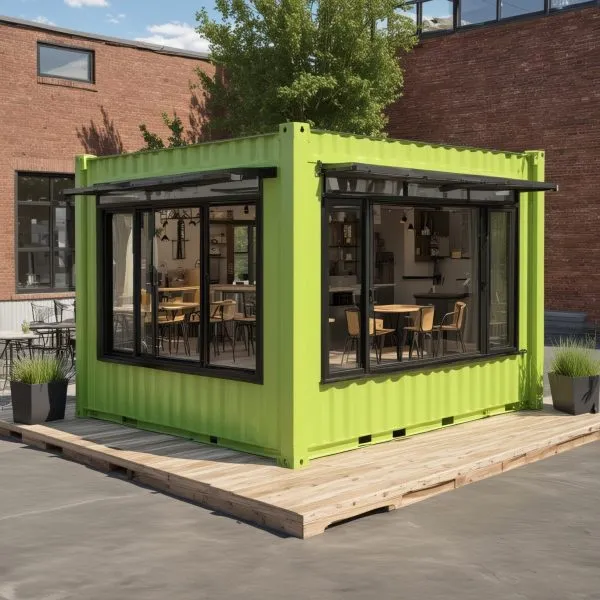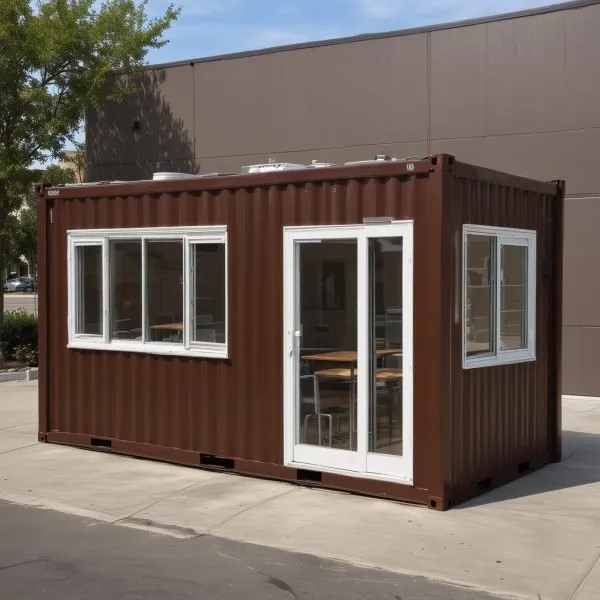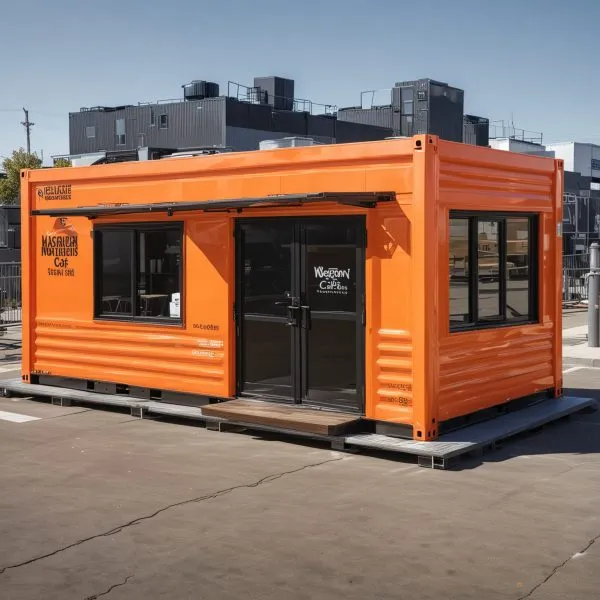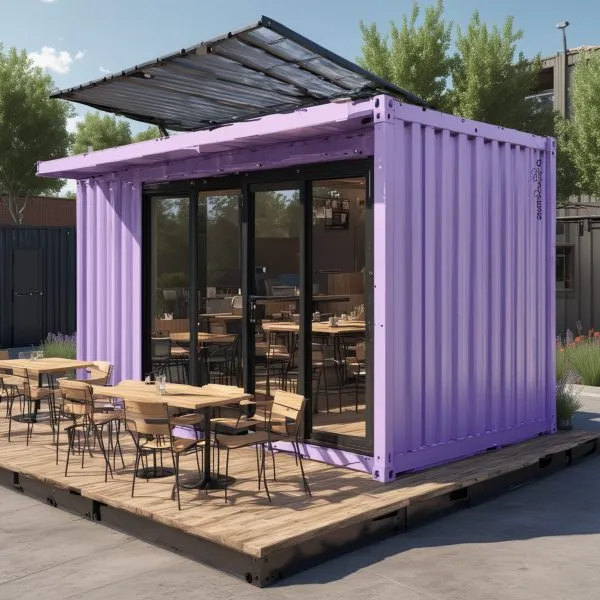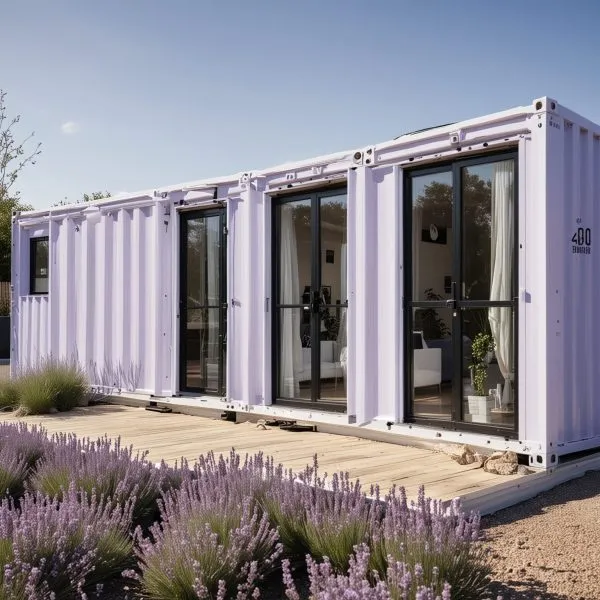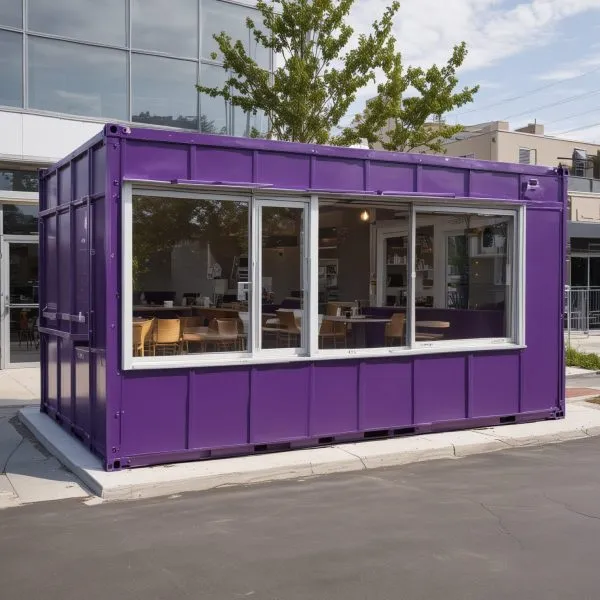Revolutionizing Urban Living: Discover the Future of Prefabricated Houses in Bangalore
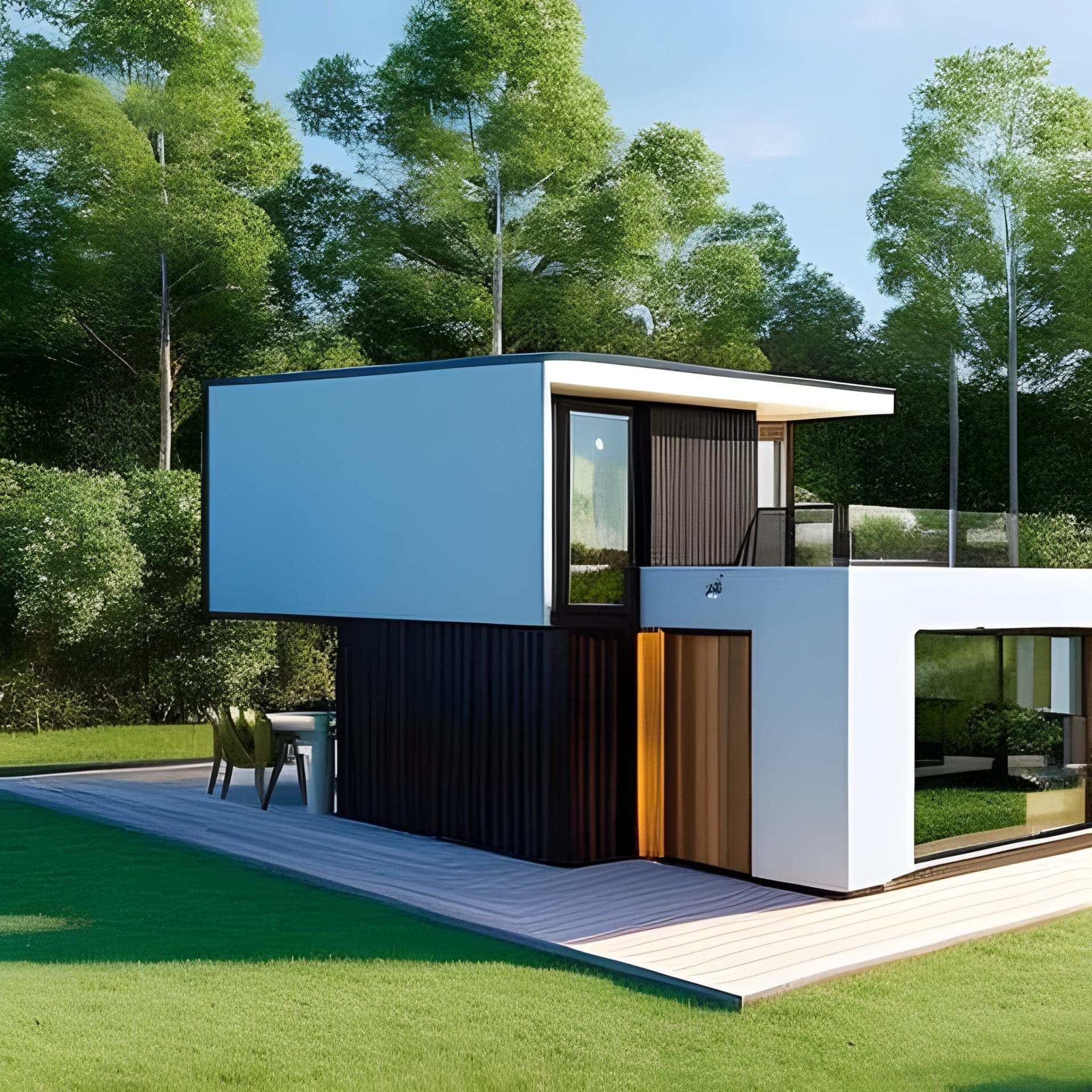
Introduction of Prefabricated Houses in Bangalore
- Traditional methods of home construction are being revolutionized by the increasing popularity and demand for prefabricated houses, especially in urban areas.
- Prefabricated houses in Bangalore, also known as prefab houses or modular homes, are constructed off-site in a controlled factory environment before being transported to their final location for assembly.
- The ease and efficiency of prefab house construction have sparked a new era in the housing industry, providing numerous advantages for urban dwellers.

Prefabricated Houses, Porta Cabins, Container Homes by Saman Portable
Advantages of prefabricated houses in Bangalore
Prefabricated houses in Bangalore by SAMAN offer a range of benefits, including high quality construction, that make them particularly well-suited for urban living.
They are cost-effective and affordable compared to traditional homes, making them an attractive option in areas with high property prices.
The construction time is significantly reduced, allowing homeowners to move in faster and minimizing disruptions caused by construction projects in crowded urban neighborhoods.
Prefab houses are also known for their sustainability and eco-friendliness, employing innovative design and construction techniques that minimize waste and environmental impact.
The Growing Popularity of Prefabricated Houses in Bangalore
Shifting trends in housing preferences
- As urban populations continue to grow, housing preferences have shifted towards more practical and efficient solutions.
- People are seeking alternatives to traditional houses that can be customized to their needs and offer a quicker construction process.
- Prefabricated houses in Bangalore provide a viable solution to these changing trends, offering a streamlined and customizable approach to urban living.
Reasons behind the increasing demand for prefabricated houses
The rising demand for prefabricated houses in Bangalore can be attributed to several factors.
Firstly, the affordability factor plays a significant role, as urban dwellers are often faced with exorbitant property prices.
Additionally, the reduced construction time and increased efficiency provided by prefab homes contribute to their popularity and appeal. Prefabricated houses are also designed to be highly durable, utilizing high-quality materials and advanced building techniques to ensure longevity and resilience against various environmental conditions.
The growing awareness and emphasis on sustainability also make prefabricated houses an attractive choice, especially for eco-conscious individuals.
Understanding Prefabricated Houses
Definition and concept of prefabrication
Prefabrication refers to the construction of building components or entire homes in a factory environment, away from the final construction site.
The concept is based on the idea of mass production, where standardized components can be manufactured efficiently and then assembled on-site.
Prefabricated houses in Bangalore, therefore, consist of modules or sections that are prefabricated off-site before being transported and assembled into a complete structure. Modular prefab homes, constructed from high-quality materials and advanced techniques, offer enhanced resilience against various environmental conditions, faster construction times, cost efficiency, and customization options.
How prefabricated houses are designed and constructed
Prefabricated houses or container house are meticulously designed using advanced architectural and engineering techniques, utilizing pre fabricated materials for faster and more efficient construction.
The design process involves creating modular components that can be easily transported and assembled.
The construction process typically involves the use of specialized machinery and skilled workers in a factory setting.
Once the components are complete, they are transported to the final location and assembled in a quick and efficient manner.
Benefits of Prefabricated Houses in Bangalore

Cost-effectiveness and affordability
- One of the key advantages of prefabricated houses in Bangalore is their cost-effectiveness.
- Prefab houses are generally more affordable than traditional homes due to the streamlined manufacturing process and efficient use of materials.
- The ability to mass-produce standardized components also helps reduce costs and make these houses more accessible to a wider population.
Reduced construction time and efficiency
- Prefabricated houses offer a significant reduction in construction time compared to traditional homes.
- The off-site construction allows overlapping of tasks, enabling seamless production and assembly.
- This shorter construction period not only benefits homeowners who can move in sooner but also minimizes disruptions in densely populated urban areas.
Greater sustainability and eco-friendliness
- Prefabricated houses are designed with sustainability and eco-friendliness in mind.
- The controlled factory environment allows for more efficient use of materials, minimizing waste.
- Additionally, many prefabricated houses incorporate sustainable building practices and utilize eco-friendly materials, reducing their environmental impact.
Innovative Designs and Customization Options
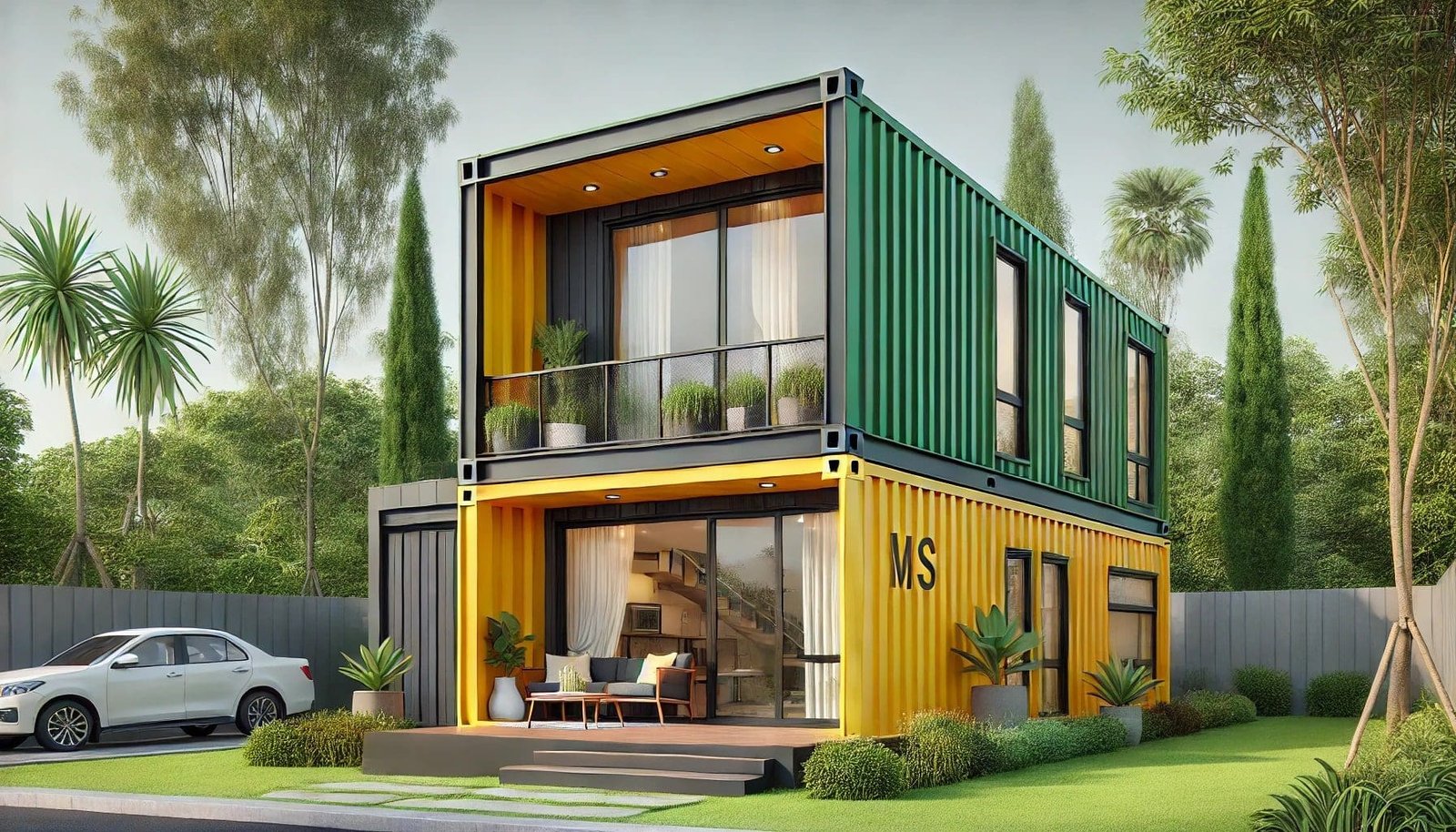
Prefabricated Houses, Porta Cabins, Container Homes by Saman Portable
Unique architectural styles and designs
Prefabricated houses in Bangalore embrace unique architectural styles and designs, challenging the perception of prefab houses in Bangalore as cookie-cutter structures and showcasing their potential to create beautiful luxury homes.
Architects and designers have successfully incorporated innovative aesthetics and flexible design options into prefabricated homes, offering a wide range of styles to cater to individual preferences.
Flexibility in modular construction
- The modular nature of prefabricated houses provides great flexibility in terms of customization and expansion.
- Homeowners can choose from a variety of modules and floor plans to create a layout that suits their specific needs.
- This adaptability makes prefabricated houses an ideal option for urban settings where space can be limited but needs can be diverse.
Personalization opportunities for homeowners
- Prefabricated houses also allow homeowners to personalize their living spaces.
- From selecting interior finishes and fixtures to choosing advanced smart home technologies, homeowners can tailor their prefab houses to reflect their unique lifestyle and preferences.
- This level of customization ensures that residents can create a space that truly feels like home.
Technology and Automation in Prefabricated Construction
Advancements in building technology
The construction industry has seen significant advancements in building technology in recent years, and prefabricated houses are no exception.
Cutting-edge technologies such as Building Information Modeling (BIM), computer-aided manufacturing (CAM), and the use of modern building material like Pronto’s insulated panels enhance precision and efficiency in the design and production processes.
These technological advancements contribute to the superior quality and durability of prefabricated houses.
Automation processes and robotic construction
- Automation processes have been integrated into prefabricated construction, further streamlining the production and assembly of prefab homes.
- Robotic construction equipment and machinery are utilized to perform repetitive and labor-intensive tasks, improving efficiency and productivity.
- This automation not only speeds up the construction process but also ensures consistent quality throughout.
Role of artificial intelligence in prefabrication
- Artificial intelligence (AI) plays a role in optimizing the design and construction of prefabricated houses.
- AI algorithms can analyze data and provide insights that lead to more efficient use of resources and improved construction practices.
- The integration of AI technologies in prefabrication enhances precision, reduces errors, and contributes to overall project success.
Overcoming Challenges in Prefabricated Construction

Perception and stigma around prefabricated houses in Bangalore
- One of the main challenges faced by prefabricated houses is the perception and stigma associated with them.
- Some individuals view prefabricated houses in Bangalore as cheap or inferior in quality compared to traditional construction.
- However, advancements in technology and innovative design have effectively countered these misconceptions, highlighting the numerous benefits of prefabricated houses.
Regulatory and legal considerations
- Prefabricated houses often face unique regulatory and legal considerations that can vary from traditional construction methods.
- Local building codes and regulations may need to be modified or adapted to accommodate prefab homes.
- However, as the industry continues to grow and gain acceptance, regulatory frameworks are evolving to ensure the safety and quality of prefabricated construction.
Ensuring quality and durability
- Achieving consistent quality and durability in prefabricated construction is crucial to overcome challenges and build trust.
- Manufacturers and builders employ strict quality control measures and inspections throughout the production process.
- Additionally, using high-quality materials and adhering to established industry standards help ensure that prefabricated houses meet or exceed expectations for durability and longevity.
Case Studies: Successful Projects of Prefabricated Houses in Bangalore
Examining notable examples of prefabricated houses
- Several successful prefabricated house projects have been completed in Bangalore, showcasing the potential of this construction method.
- One notable example is the “Green On Blue” residential complex, which consists of prefabricated modular units designed for urban living.
- Another project, the “SkyHive Apartments,” demonstrates how prefabricated construction can efficiently address the housing needs of a growing population while offering sustainable features.
Lessons learned and innovations in construction techniques
- Through these case studies, valuable lessons have been learned, leading to continuous innovations in construction techniques.
- Builders and developers have refined their processes, resulting in even more efficient production and assembly methods.
- Additionally, the ability to incorporate new materials and technologies ensures that prefabricated houses remain at the forefront of modern construction practices.
The Future of Prefabricated Houses in Bangalore
Projected growth and market potential
- The future for prefabricated houses in Bangalore looks promising, with projected growth and increasing market potential.
- As urban populations continue to rise, the demand for more affordable and efficient housing solutions will continue to drive the popularity of prefabricated houses.
- The industry is expected to witness further advancements in technology, materials, and design, enhancing the overall appeal and versatility of prefab homes.
Integration of smart home technology
- Prefabricated houses are well-positioned for the integration of smart home technology.
- By incorporating advanced automation systems, connectivity options, and digital solutions, prefab houses can offer homeowners a seamless and efficient living experience.
- Homeowners can enjoy the convenience and comfort of smart home features, further enhancing the quality of life within their prefab homes.
Collaboration with architectural firms and designers
- To meet the evolving demands and preferences of urban dwellers, collaboration between prefab builders and architectural firms or designers will be essential.
- By working together, they can create innovative designs that blend aesthetic appeal, functionality, and cost-effectiveness.
- Such collaborations ensure that future prefabricated houses continue to captivate the market with their unique and thoughtfully designed structures.
Sustainability and Energy Efficiency in Prefabricated Houses

Eco-friendly materials and construction practices
- Sustainability is a paramount consideration in the future of prefabricated houses.
- Manufacturers are increasingly using eco-friendly materials, such as recycled or renewable resources, to construct prefab homes.
- Additionally, construction practices are being refined to minimize waste, reduce energy consumption, and lower the overall environmental impact of prefab houses.
Integration of renewable energy sources
- Prefabricated houses have the potential to integrate renewable energy sources seamlessly.
- Solar panels, wind turbines, and other renewable energy systems can be readily incorporated into the design and construction of prefab homes.
- This integration allows homeowners to harness the power of renewable energy, reducing their carbon footprint and lowering energy costs.
Energy-efficient features in prefabricated houses
- Energy efficiency is a key focus in the design and construction of prefabricated houses.
- From advanced insulation techniques to energy-efficient appliances, prefab homes are built to minimize energy consumption and maximize sustainability.
- This emphasis on energy efficiency ensures that homeowners can enjoy comfortable living spaces while reducing their impact on the environment.
Community and Social Impact
Addressing housing needs of low-income communities
- Prefabricated houses have the potential to address the housing needs of low-income communities in Bangalore.
- These cost-effective and time-efficient homes can provide an affordable solution to those who are priced out of the traditional housing market.
- By working closely with local communities and government initiatives, prefabricated houses can make a significant difference in improving the living conditions of marginalized populations.

Initiatives for affordable housing
- Several initiatives and programs are being developed to promote affordable housing through prefabricated construction.
- Collaborations between government agencies, developers, and builders aim to create sustainable and livable communities for individuals and families with limited financial resources.
- These initiatives focus on utilizing prefab houses to bridge the affordability gap in urban areas while maintaining the highest quality standards.
Social benefits of prefabricated houses
- Prefabricated houses offer numerous social benefits that contribute to the overall well-being of communities.
- The quick construction time minimizes disruptions and disturbances for residents and neighboring properties, fostering a sense of stability and peace.
- Additionally, the flexibility and customization options of prefab houses allow for comfortable and personalized living spaces, promoting a sense of belonging and pride among homeowners.
Advancements in Smart Home Technology
Integration of home automation systems
- As the demand for smart home technology continues to rise, prefabricated houses are well-suited for the integration of home automation systems.
- Residents can control lighting, heating, security, and other features through intuitive interfaces, enhancing convenience and comfort.
- The integration of smart home technology not only simplifies daily routines but also allows for greater energy efficiency and cost savings.
Connectivity and digital solutions for homeowners
- Prefabricated houses enable seamless connectivity and digital solutions for homeowners.
- Integration with high-speed internet connections, smart devices, and entertainment systems creates a technologically advanced living environment.
- Homeowners can enjoy the benefits of remote monitoring, surveillance, and home management through the convenience of their smartphones or other connected devices.readymade house in Bangalore
Enhancing quality of life through smart home features
- Smart home features in prefabricated houses enhance the overall quality of life for homeowners.
- Advanced systems for temperature control, lighting, and entertainment create personalized and comfortable living spaces.
- The ease of managing security, energy consumption, and household tasks contributes to a stress-free and enjoyable living experience.
Challenges and Opportunities for the Real Estate Industry
Impact on traditional construction methods
- Prefabricated houses pose challenges to traditional construction methods in the real estate industry.
- The speed and efficiency of prefab construction often outperform traditional methods, leading to a shift in preferences among homeowners.
- However, this challenge also presents an opportunity for the real estate industry to adapt and embrace the benefits of prefabricated construction.
Adaptation of real estate professionals
- Real estate professionals must adapt to the changing landscape brought about by the increasing popularity of prefab houses.
- Agents and brokers need to familiarize themselves with the unique selling points and advantages of prefabricated homes to effectively market and sell these properties.
- By understanding the benefits and potential of prefabricated houses, real estate professionals can cater to the evolving needs and preferences of urban buyers.
The role of developers and builders in promoting prefabricated houses in Bangalore
- Developers and builders play a crucial role in promoting the benefits of prefabricated houses and shaping public perception.
- By prioritizing high-quality craftsmanship, sustainable practices, and innovative designs, they can showcase the potential of prefab construction.
- Collaborations with architects and designers create aesthetically pleasing and functional prefabricated homes, further solidifying their place in the real estate market.
Future Trends and Innovations in Prefabricated Houses in Bangalore
New materials revolutionizing construction
- The future of prefabricated houses will see the introduction of new materials that revolutionize the construction industry.
- Advances in materials science, such as high-performance composites or ultra-lightweight alloys, will contribute to more efficient and sustainable prefab construction.
- These new materials will enhance the structural integrity, durability, and energy efficiency of prefabricated houses.
Integration of sustainable and recycled materials
- Prefabricated houses will continue to integrate sustainable and recycled materials into their construction.
- Using eco-friendly resources such as reclaimed wood, recycled plastics, or renewable composites contribute to reduced environmental impact and carbon footprint.
- These conscientious choices align with growing societal concerns regarding sustainability and encourage a circular economy approach in construction practices.

Exploring off-site and on-site construction hybrids
- The future of prefabricated houses will likely involve a blend of both off-site and on-site construction methods.
- Off-site construction offers efficiency and quality control, while on-site assembly allows for customization and adaptation to site-specific factors.
- By combining the best of both approaches, developers and builders can create innovative and adaptable solutions that meet the diverse needs of urban living.
Impact on Urban Planning and Infrastructure
Sustainable urban development with prefabricated houses in Bangalore
- Prefabricated houses have the potential to contribute to sustainable urban development.
- By offering an efficient and eco-friendly alternative to traditional construction, prefabricated houses in Bangalore can address the growing housing demands of rapidly expanding cities.
- Integrated planning and collaboration between urban planners, architects, and prefab builders can result in well-designed and sustainable urban communities.
Role of local authorities and planning regulations
- Local authorities and planning regulations play a significant role in facilitating the integration of prefabricated houses into urban landscapes.
- Clear and adaptable regulations that address prefab construction methods can streamline the approval process and encourage innovation in urban planning.
- By recognizing the benefits and potential of prefabricated houses in Bangalore, authorities can support sustainable urban growth and affordable housing initiatives.
Infrastructure requirements and considerations
- The integration of prefabricated houses into urban areas brings about unique infrastructure requirements and considerations.
- These can include transportation for delivering prefabricated components, suitable sites for assembly, and utility connections.
- Collaboration between prefab builders, infrastructure planners, and local authorities can ensure that the necessary support systems are in place to facilitate the growth of prefabricated construction.
If you are looking prefabricated house and its price in Bangalore so please contact us
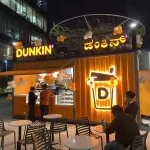 Container Cafe
Container Cafe